Certificate

The Accounting Specialist Certificate program provides students with a working knowledge of accounts receivable, accounts payable, and general accounting activities. Students may apply the courses taken in the Accounting Specialist Certificate to the Associate Degree in Applied Science with a Major in Accounting.
Accounting Specialist Certificate can be obtained completely ONLINE through selection of appropriate classes.
This program is aligned with the following career cluster: Finance.
Program Contact:
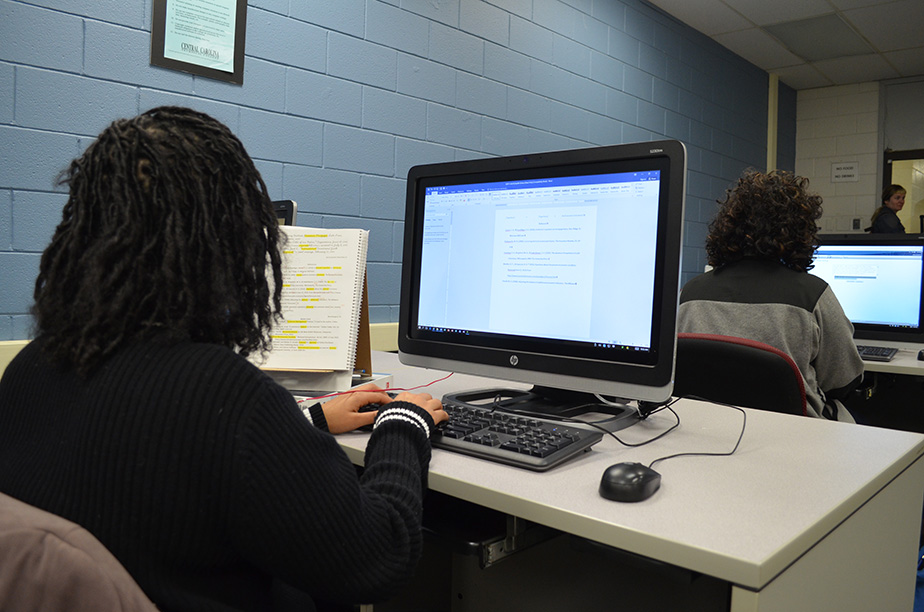
The Computer Specialist Certificate program is designed to provide entry-level skills necessary for careers in the field of microcomputer operations and support services. The program is offered for individuals seeking to develop or broaden their knowledge of microcomputer software applications, operating systems, programming, data and Internet communications. Students may apply courses in the Computer Specialist Certificate toward the Associate Degree in Applied Science with a major in Computer Technology.
The Computer Specialist Certificate Program requires at least a grade of “C” in all of the courses offered within the CMSP curriculum for the grade to be counted toward graduation. Specifically, these include courses with the following prefixes: CPT and IST.
This program is aligned with the following career cluster: Information Technology.
Program Contact:

The Entrepreneurship/Small Business Management Certificate program is designed to provide a foundation for those seeking to start, build or manage their own business. The program introduces students to a variety of topics, such as assessing organizational strategies and practices, developing a business idea and plan, applying sound management principles to real-life business situations, and understanding key functions such as business law, customer service, e-commerce, small business operations and quality. Students independently develop their own business plan and are connected with local stakeholders for individual support needed throughout the business development process.
Entrepreneurship/Small Business Management Certificate can be obtained completely ONLINE through selection of appropriate classes.
Students may apply courses in the Entrepreneurship/Small Business Management Certificate toward the Associate Degree in Applied Science with a major in Management.
This program is aligned with the following career cluster: Business, Management & Administration.
Program Contact:

The Office Management Certificate is designed to provide fundamental knowledge and skills in a wide variety of office management and administration applications to run a one-person or small office or department. The certificate offers a broad foundation of knowledge about organizations and how they operate and includes technical skills in accounting, payroll, supervision, human resources, computer technology, and professional communications to ensure graduates are able to manage all administrative functions to supplement on-the-job knowledge about the particular business or organization.
Office Management Certificate can be obtained completely ONLINE through selection of appropriate classes.
This program is aligned with the following career cluster: Business, Management & Administration.
Program Contact:

The Supervision and Leadership Foundations Certificate program is designed to provide fundamental knowledge and entry-level skills necessary for careers in supervision, management and general business. The certificate is designed for those seeking a first job where a degree is not required, as an enhancement to current job responsibilities or for those in a technical career field seeking general business skills. The program offers a broad foundation of knowledge about organizations and how they operate, such as assessing organizational strategies and practices, applying sound management principles to real-life business situations, and understanding key functions such as business law, human resources, customer service, quality and operations management. It is beneficial for those who aspire to supervision and management positions as well as those who want a basic understanding of business principles and practices to enhance effectiveness in any position. Students may apply courses in the Supervision and Leadership Foundations Certificate toward the Associate Degree in Applied Science with a major in Management.
Supervision and Leadership Foundations Certificate can be obtained completely ONLINE through selection of appropriate classes.
Program Contact:

The Early Childhood Development Certificate program prepares graduates for employment in educational programs for children from birth to age eight. Individuals will obtain a basic understanding of the developmental needs of young children and will learn how to create a nurturing environment in preschool and after school programs. All courses in the Early Childhood Development Certificate program can be applied toward the Associate Degree in Early Care and Education.
Job opportunities in this area are increasing because more children are attending pre-primary schools than ever before. Job opportunities are available in public and private nursery schools and child care.
Courses in the program are available in a variety of formats.
Students entering this program of study must furnish a copy of High School Diploma or GED Certificate.
The T.E.A.C.H. South Carolina scholarship may be available for students already employed in child care. Students who complete ECD 101, Introduction to Early Childhood may be eligible for the South Carolina Early Childhood Credential.
This program is aligned with the following career clusters: Education & Training.
Program Contact:

The Human Services Certificate in Gerontology is designed to prepare graduates with the knowledge necessary to support the needs of older adults. As the population of older adults continues to grow, there will be a need for qualified individuals in the field of gerontology. The program will teach the skills necessary to make a positive impact on the lives of older adults by understanding their special needs and requirements.
The program is aligned with the following career cluster: Human Services.
Program Contact:

The Human Services Certificate is designed to prepare graduates to become service providers in a variety of human services areas, particularly in the health, wellness, and recovery fields. The program will teach the skills necessary to make a positive impact on the lives of clients in a variety of settings and expose students to intervention techniques for working with individuals and groups. Students will complete a semester of field placement at a human service agency in the area.
Prior to HUS 250 students must submit information and fees for criminal background checks. A criminal record could make you ineligible to complete field placement and graduate from the program. All Human Services (HUS) courses must be completed with a grade of “C” or better in order to count toward graduation.
The program is aligned with the following career cluster: Human Services.
Program Contact:

The Infant and Toddler Certificate program specifically prepares graduates for meeting the specialized needs of children under age three. The individual will obtain a basic understanding of the developmental and care needs of young children and will learn how to create a nurturing environment in infant and toddler programs in order to meet the needs of young children and their families. Special needs and early intervention will also be addressed. All courses in the Infant and Toddler Care Certificate program can be applied toward the Associate Degree in Early Care and Education.
Job opportunities in this area are increasing because large numbers of infants and toddlers are enrolled in child care and federally funded programs. Job opportunities are available in Early Head Start and public and private child care programs.
Courses in the program are available during the day and evening. Students entering this program of study must furnish a copy of High School Diploma or GED Certificate. The T.E.A.C.H. South Carolina scholarship may be available for students already employed in child care. Students who complete ECD 101, Introduction to Early Childhood may be eligible for the South Carolina Early Childhood Credential.
Students who complete the Infant and Toddler Care Certificate may be eligible for the South Carolina Infant-Toddler Credential.
This program is aligned with the following career cluster: Education & Training.
Program Contact:

The Child Care Assistant Certificate program specifically prepares graduates for assisting classroom teachers in the care and supervision of children in preschool and child care settings. This certificate meets the skill proficiencies of an Early Childhood Educator Level 1 (ECE 1) designated by the National Association for the Education of Young Children (NAEYC) in the Professional Standards and Competencies for Early Childhood Educators. The ECE I is expected to demonstrate introductory knowledge and application of the standards and competencies. All courses in the Child Care Assistant Certificate program can be applied toward the Associate Degree in Early Care and Education.
Job opportunities are available in assistant positions in child care programs, preschools, Head Start programs, child development centers, after school programs, programs for children with special needs, and self-employment.
The T.E.A.C.H. South Carolina scholarship may be available for students already employed in child care. Students who complete ECD 101, Introduction to Early Childhood may be eligible for the South Carolina Early Childhood Credential.
Courses in the program are available in a variety of formats.
This program is aligned with the following career cluster: Education & Training.
Program Contact:

The Environmental, Health, and Safety Certificate program will prepare graduates to evaluate and remediate workplace and environmental hazards in order to promote public health. Graduates of the Certificate will be prepared to enter the workforce as a technician or continue their education and obtain an Associate Degree in Applied Science with a Major in Environmental Engineering Technology. The program prepares students for a career in industrial hygiene, industrial safety and health, toxicology, risk management, public health, regulatory compliance, and occupational health.
The Certificate is designed to prepare graduates to recognize regulatory issues and maintain a safe workplace. The program content is applicable to industrial and construction personnel as well as individuals responsible for safety at public works departments, city and county governments, emergency response teams, and civil defense workers. Employment in the field of study or academic advisor approval is necessary for admittance into the program.
This program is an online program.
This program is aligned with the following career cluster: Science, Technology, Engineering & Mathematics.
Program Contact:

The Water Operator Certificate program is designed to assist students who are pursuing a license in water treatment or distribution, which is a requirement to progress in the field. This Certificate has been approved by the South Carolina Department of Labor Licensing and Regulation to count as 1-year of work experience toward an operator license after completion of the trainee year and successfully passing the State Certification Exam. Employment in the field of study or academic advisor approval is necessary for admittance into this program.
This program is aligned with the following career cluster: Science, Technology, Engineering & Mathematics.
This program is an online program.
Program Contact:

The Wastewater Operator Certificate program is designed to assist students in studying for a license in physical/chemical or biological wastewater treatment, which is a requirement to progress in the field. This Certificate has been approved by the South Carolina Department of Labor Licensing and Regulation to count as 1-year of work experience toward an operator license after completion of the trainee year and successfully passing the State Certification Exam. Employment in the field of study or academic advisor approval is necessary for admittance into this program.
This program is aligned with the following career cluster: Science, Technology, Engineering & Mathematics.
This program is an online program.
Program Contact:
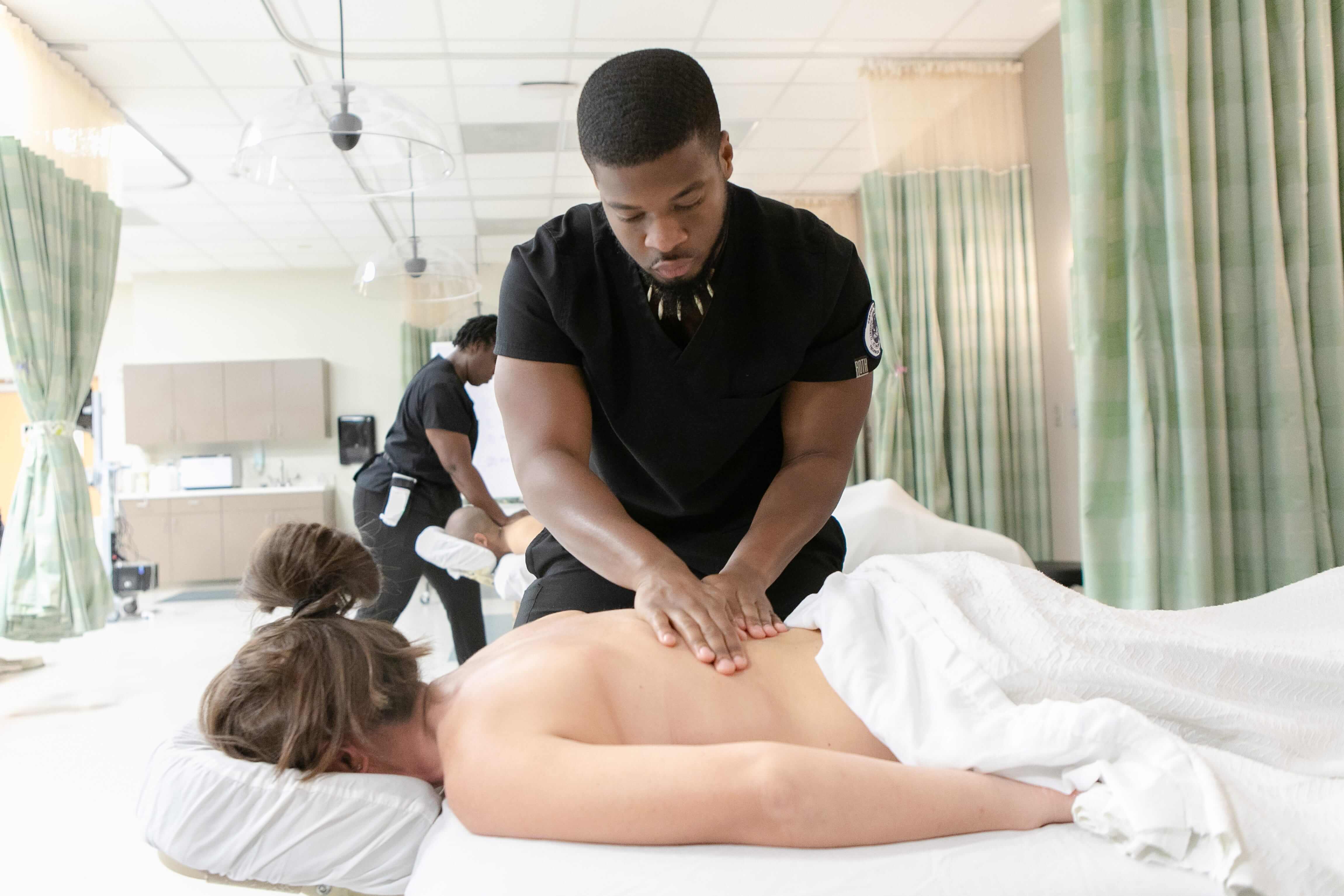
The Massage Therapy Program is an entry-level training program for students interested in becoming a massage therapist or for health care providers wishing to expand their range of clinical skills and knowledge. The Massage Therapy program prepares graduates to work in direct client care settings to provide manipulation (massage) of the soft tissue structures of the body to prevent and alleviate pain, discomfort, muscle spasm, and stress, and to promote health and wellness.
Employment opportunities may be found in health care facilities, rehabilitation centers, medical offices, nursing homes, spas, health and sports clubs, hotels/resorts, cruise ships, and private practice.
Upon successful completion of the Massage Therapy Certificate, students are eligible to apply to take the Federation of States Examination (MBLEx) before applying for a South Carolina license. Note: South Carolina licensure eligibility may be denied to applicants with criminal convictions. Graduates are eligible to apply to take the NCBTMB Specialty Certificate for Integrative Healthcare.
Program Contact:

The Medical Record Coding Certificate program is designed to prepare health information professionals who focus on medical record management with an emphasis on procedural and diagnostic coding for reimbursement of professional services performed in healthcare facilities. The program includes medical terminology, human disease process, pharmacology, medical billing, procedural and diagnostic coding and medical records regulations. Upon successful completion of the Medical Record Coding Certificate program, the student may be eligible to take the certification examinations administered by the American Health Information Management Association (AHIMA) and/or the American Academy of Professional Coders (AAPC).
Medical Record Coding is a completely ONLINE certificate program.
Program Contact:

The Inpatient Medical Coding Certificate program is designed to prepare Health Information Professionals by focusing on procedural and diagnostic coding for reimbursement of professional services performed in inpatient facility settings. The program includes medical terminology, anatomy and physiology, inpatient procedural coding (ICD-10-PCS) and diagnostic coding (ICD-10-CM) as well as medical regulations. Upon successful completion of the Inpatient Medical Coding Certificate program, the student is eligible to take the certification examinations administered by the American Health Information Management Association (AHIMA) or the American Academy of Professional Coders (AAPC). In order to complete the AMCO program students who have successfully completed the MRCO program need only take HIM 225 and HIM 250. The AMCO program is presented 100% online and is supported with a wide variety of methods and opportunities for direct contact with the program manager and instructors.
Inpatient Medical Coding is a completely ONLINE certificate program.
Program Contact:
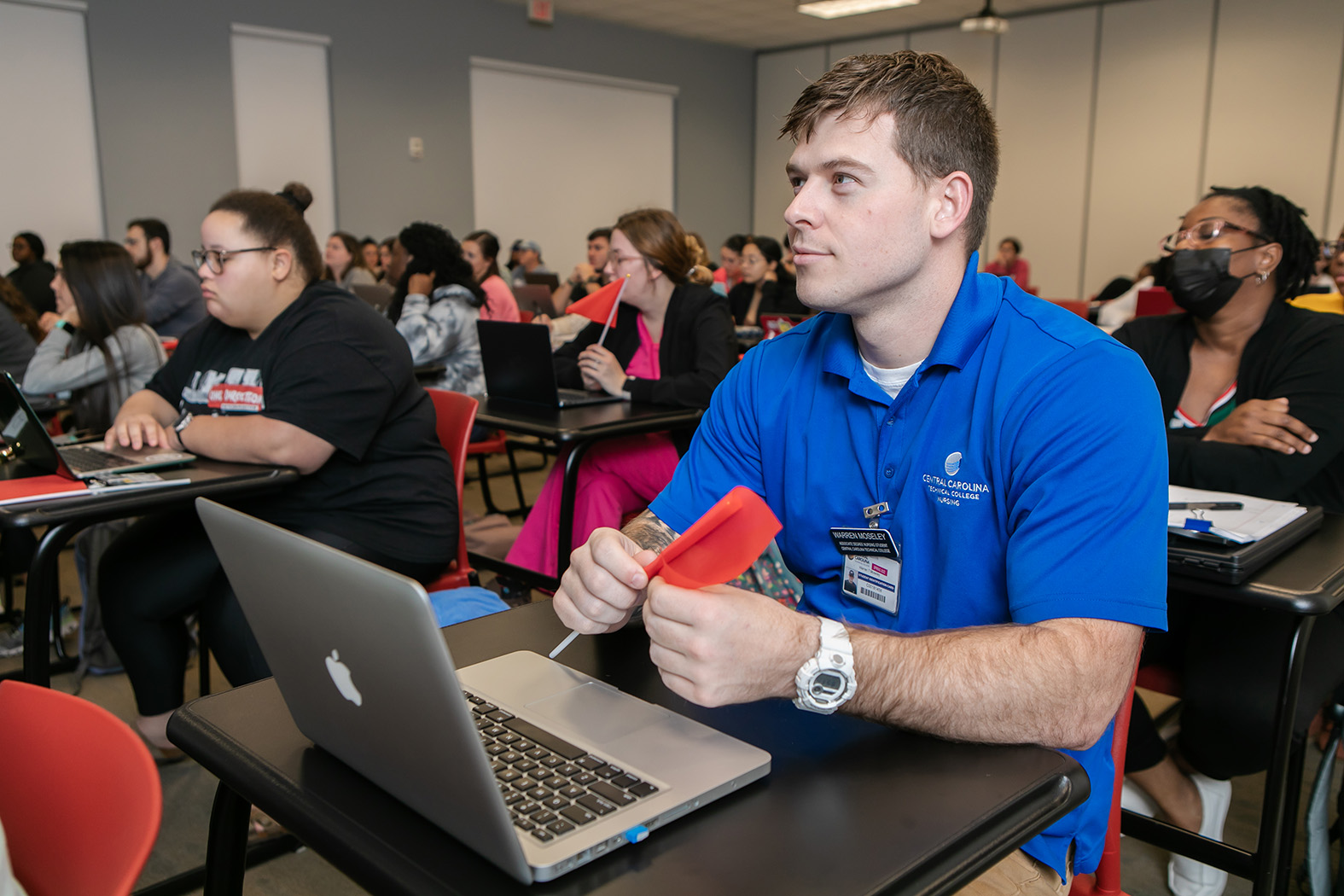
The Pre-Nursing Preparatory Certificate program provides a structured curriculum for students wishing to apply for admission to the Associate Degree in Applied Science Nursing program. Completion of the certificate prepares the student for application but does not guarantee acceptance into the program.
This program is aligned with the following career cluster: Health Science.
Program Contact:
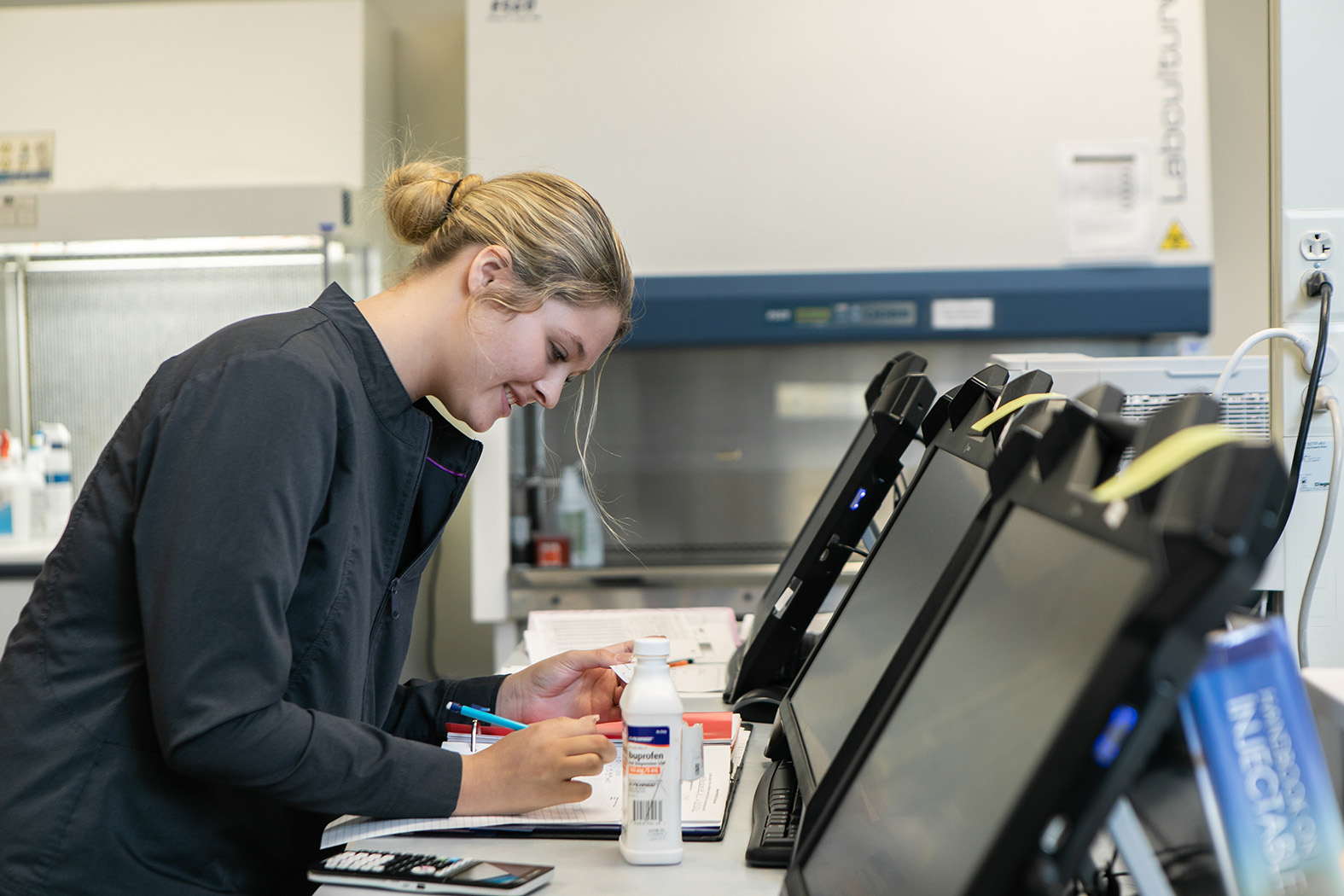
The Pharmacy Technician Certificate Curriculum is a formal academic training program that prepares individuals to become pharmacy technicians. These allied health professionals assist and support licensed pharmacists in preparing and dispensing medications and other health care products to patients. Under the direction of a pharmacist, the pharmacy technician performs pharmacy-related functions, in compliance with specific policies and procedures that provide optimal pharmaceutical care for their patients.
Pharmacy technicians are in high demand in health care and in the pharmaceutical industry. Job opportunities for pharmacy technicians are good, especially for those with previous experience, formal training, or certification, according to the U.S. Department of Labor. Possible career opportunities for pharmacy technicians include a variety of practice environments including hospital, infusion, and long term care, and mail-order, chain and community pharmacy services. Pharmacy technicians work in computerized, clean, organized, well-lighted, and well-ventilated areas. Most of their workday is spent on their feet. They may be required to lift heavy boxes or to use stepladders to retrieve supplies from high shelves.
Pharmacy technicians often have varying work schedules that include nights, weekends, and holidays. In facilities that are open twenty-four hours a day, such as hospital and mail order pharmacies, technicians may be required to work nights. Many technicians work part time.
The South Carolina Pharmacy Practice Act (administered by the S.C. Board of Pharmacy) requires all pharmacy technicians desiring state certification to (1) pass the Pharmacy Technician Certification Exam (PTCE)- a national exam, (2) complete 1000 hours of practice (up to 400 clinical training hours in an educational program are recognized) under the supervision of a licensed pharmacist, and (3) provide proof of completion of a formal academic pharmacy technician training program that is nationally accredited.
The Pharmacy Technician Certificate program is accredited by the American Society of Health System Pharmacists (ASHP), 500 East-West Highway, Suite 900 Bethesda, MD 20814, Phone (866) 279-0681, www.ashp.org and the Accreditation Council for Pharmacy Education (ACPE), 190 S. LaSalle Street, Suite 2850 Chicago, IL 60603-3499, Phone (312) 664-3574, Fax (866) 228-2631, www.acpe-accredit.org.
Program Contact:
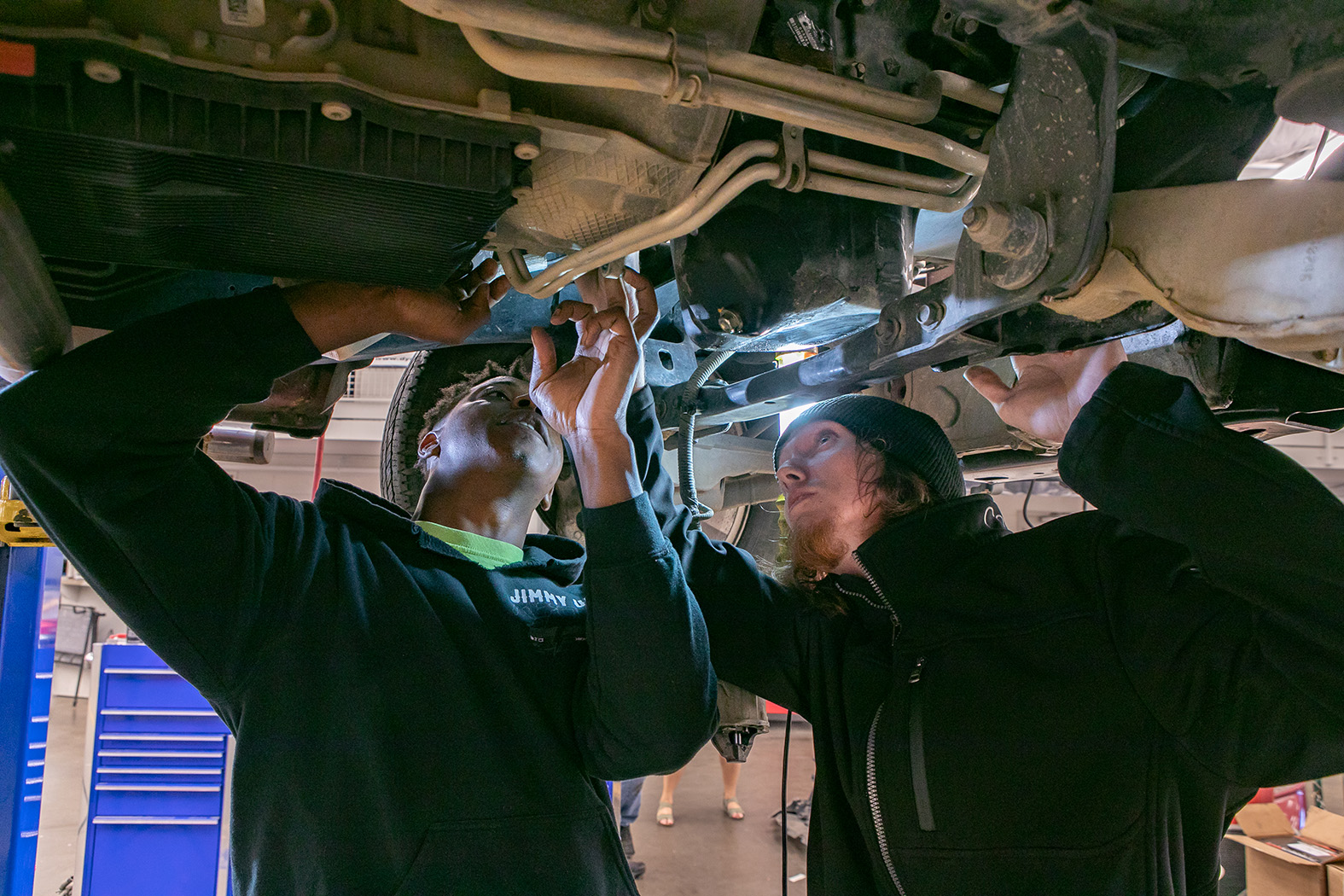
The Automotive Diagnostic Technology Certificate is designed to provide technology specific training in a combination of classroom and lab settings to prepare graduates for entry-level jobs in the field of automotive electrical systems repair, heating and air conditioning repair, and engine performance, apprentice technician, auto technician, and specialty technician. Job placement opportunities are excellent.
The Automotive Diagnostic Technology Certificate is accredited by the National Automotive Technicians Education Foundation (NATEF).
This program is aligned with the following career cluster: Transportation, Distribution & Logistics.
Program Contact:
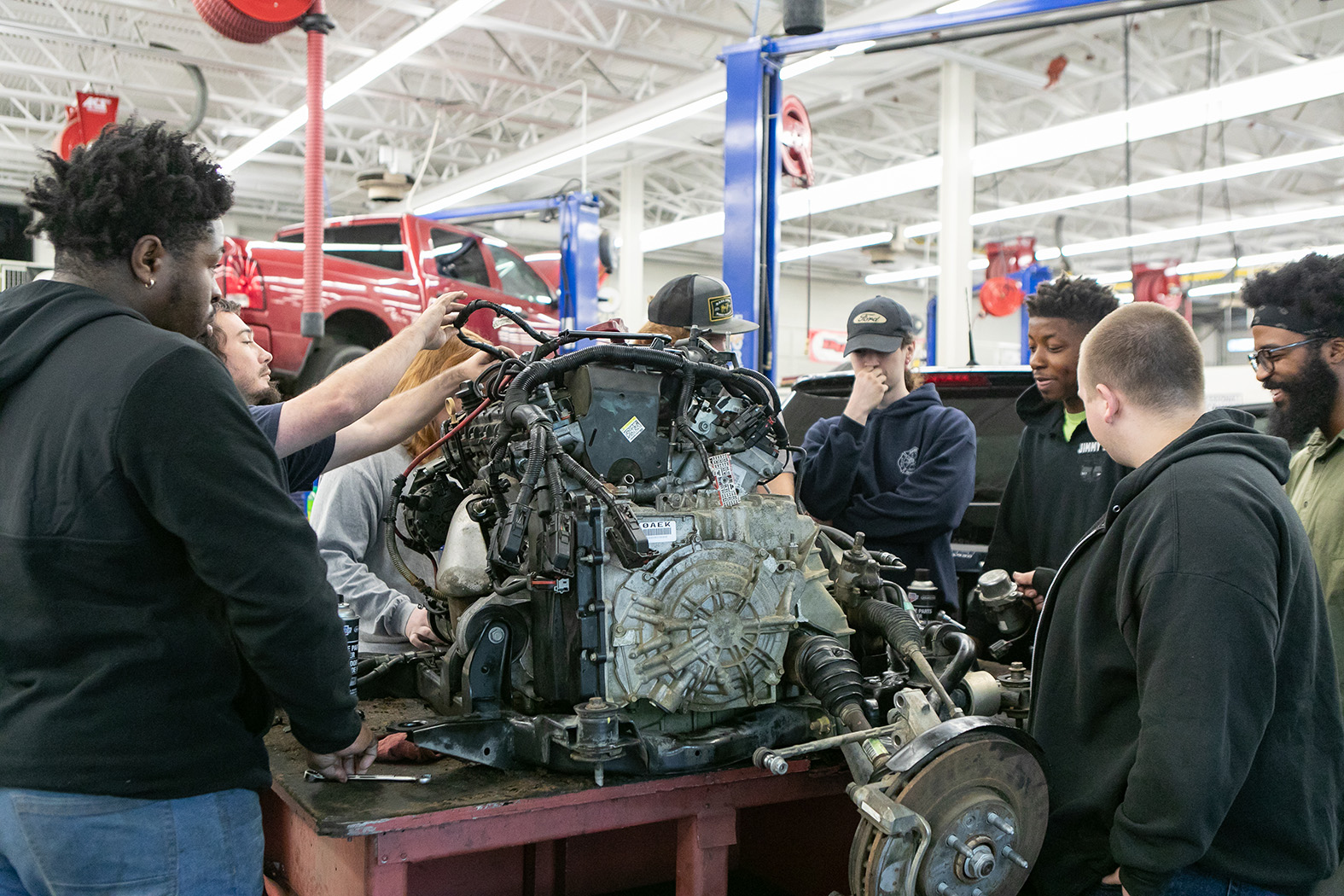
The Automotive Technology Certificate is designed to provide technology specific training in a combination of classroom and lab settings to prepare graduates for entry-level jobs in the field of automotive engine repair; drive train repair; and brake, suspension, and steering diagnosis. Job opportunities include apprentice technician, auto technician, parts specialist, specialty technician, and service manager. Job placement opportunities are excellent.
The Automotive Technology Certificate is accredited by the National Automotive Technicians Education Foundation (NATEF).
This program is aligned with the following career cluster: Transportation, Distribution & Logistics.
Program Contact:
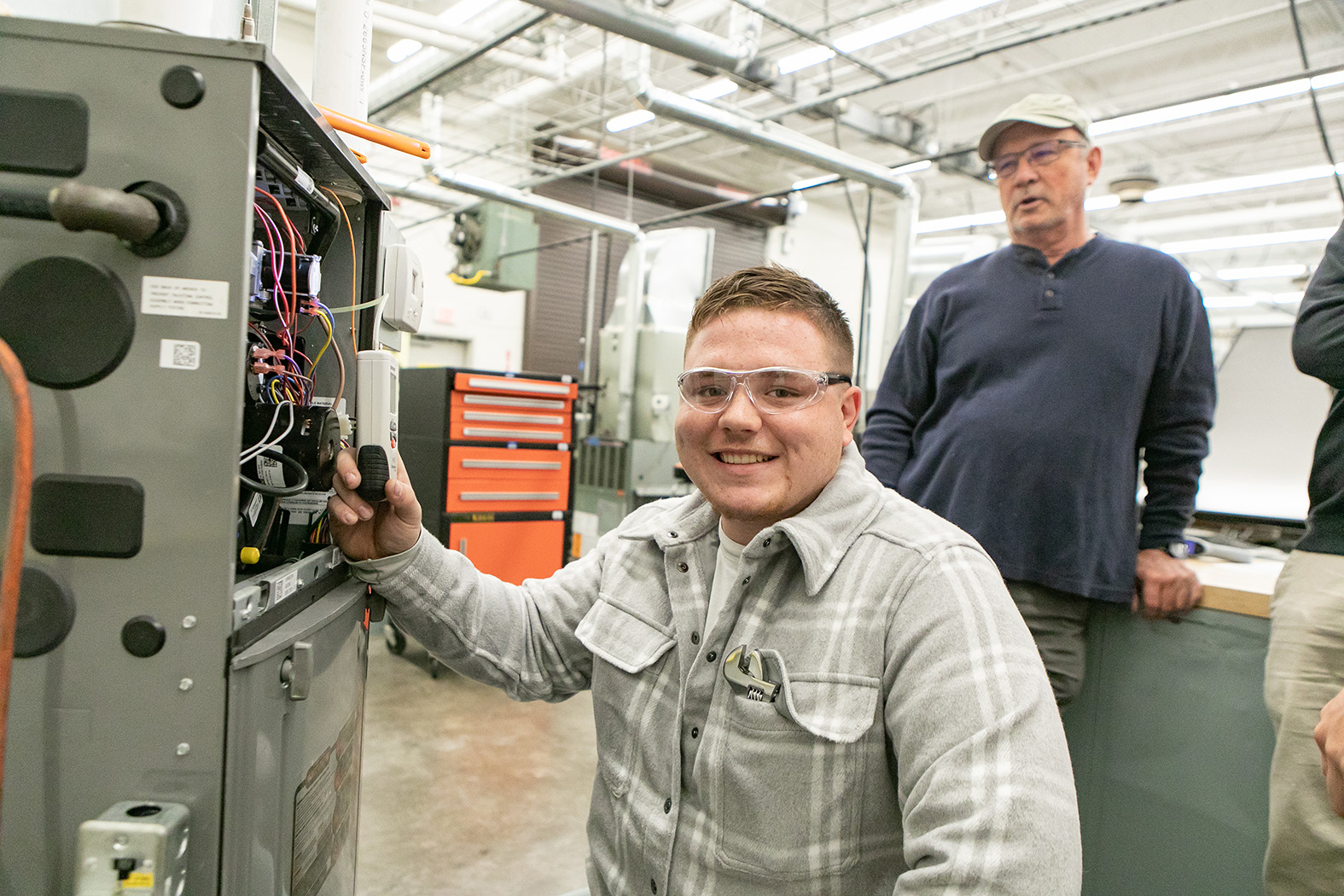
Graduates of the Basic Air Conditioning and Heating Certificate program may enroll in the Advanced Air Conditioning and Heating Certificate to further develop their skills. The advanced program includes both theory and practical work in commercial refrigeration and air conditioning principles, calculations, the study of electrical components and programmable controls.
Students must successfully complete the Basic Air Conditioning and Heating Certificate or have departmental approval prior to being admitted into the Advanced Air Conditioning and Heating Certificate.
This program is available during the day.
The Advanced Air Conditioning and Heating Certificate is accredited by HVAC/Excellence.
This program is aligned with the following career cluster: Architecture and Construction.
Program Contact:
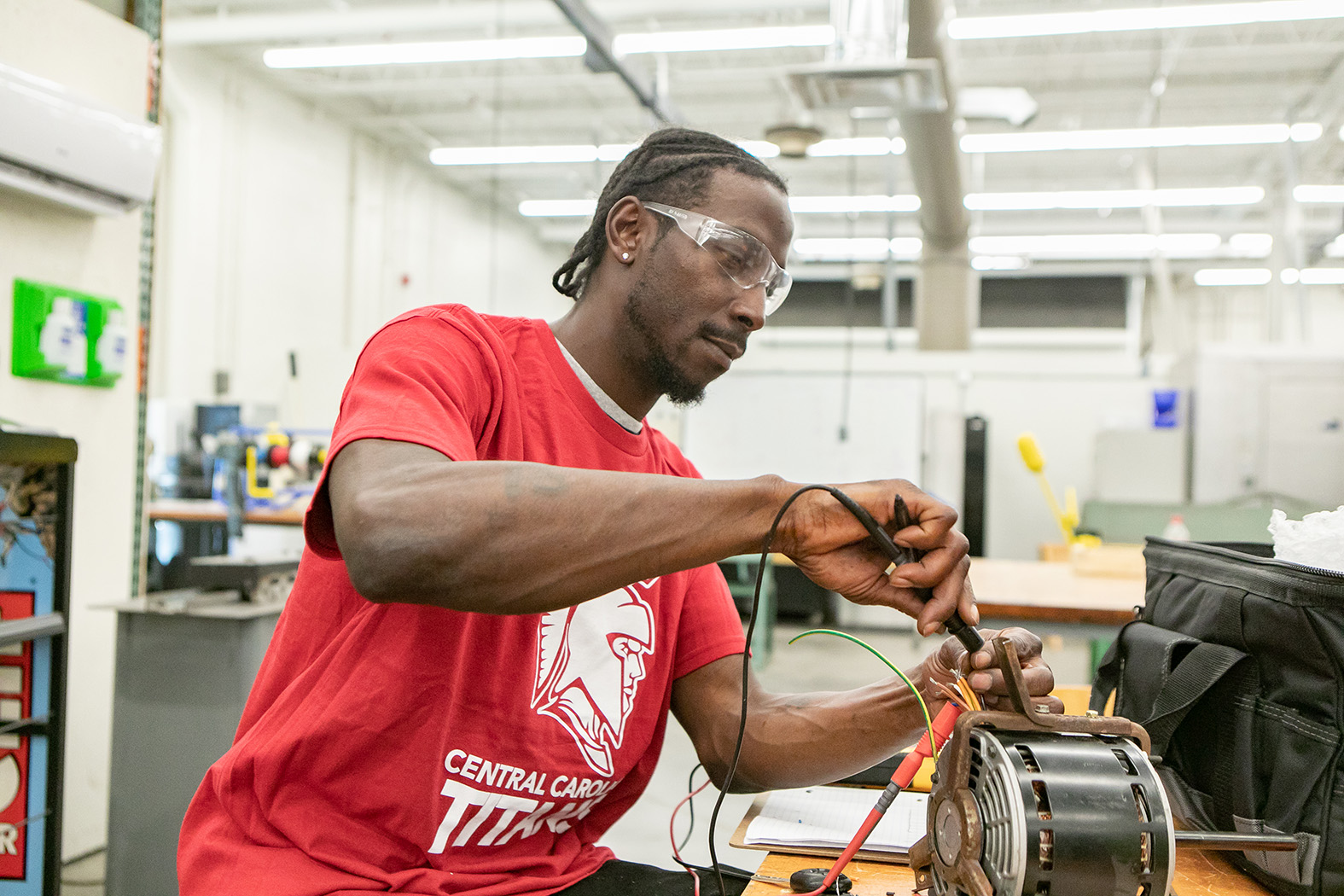
The Basic Air Conditioning and Heating Certificate program prepares graduates for numerous careers in the HVAC/R field. Job opportunities in heating, air conditioning, and refrigeration include these fields: sales, installation, service technician, maintenance and repair, and operations. Instruction includes both theory and practical work in refrigeration and air conditioning principles, calculations, the study of electrical machinery, and various related service courses, including domestic refrigeration and refrigeration piping installation.
The heating and air conditioning industry is rapidly becoming one of the largest in the country. Air conditioning is a must for homes, offices, hotels, theaters, and industrial plants. New applications of air conditioning and refrigeration theory are announced daily.
This program is available during the day and evening; however, a different course sequence and additional time may be required to complete this program in the evening.
The Basic Air Conditioning and Heating Certificate is accredited by HVAC/Excellence.
This program is aligned with the following career cluster: Architecture and Construction.
Program Contact:
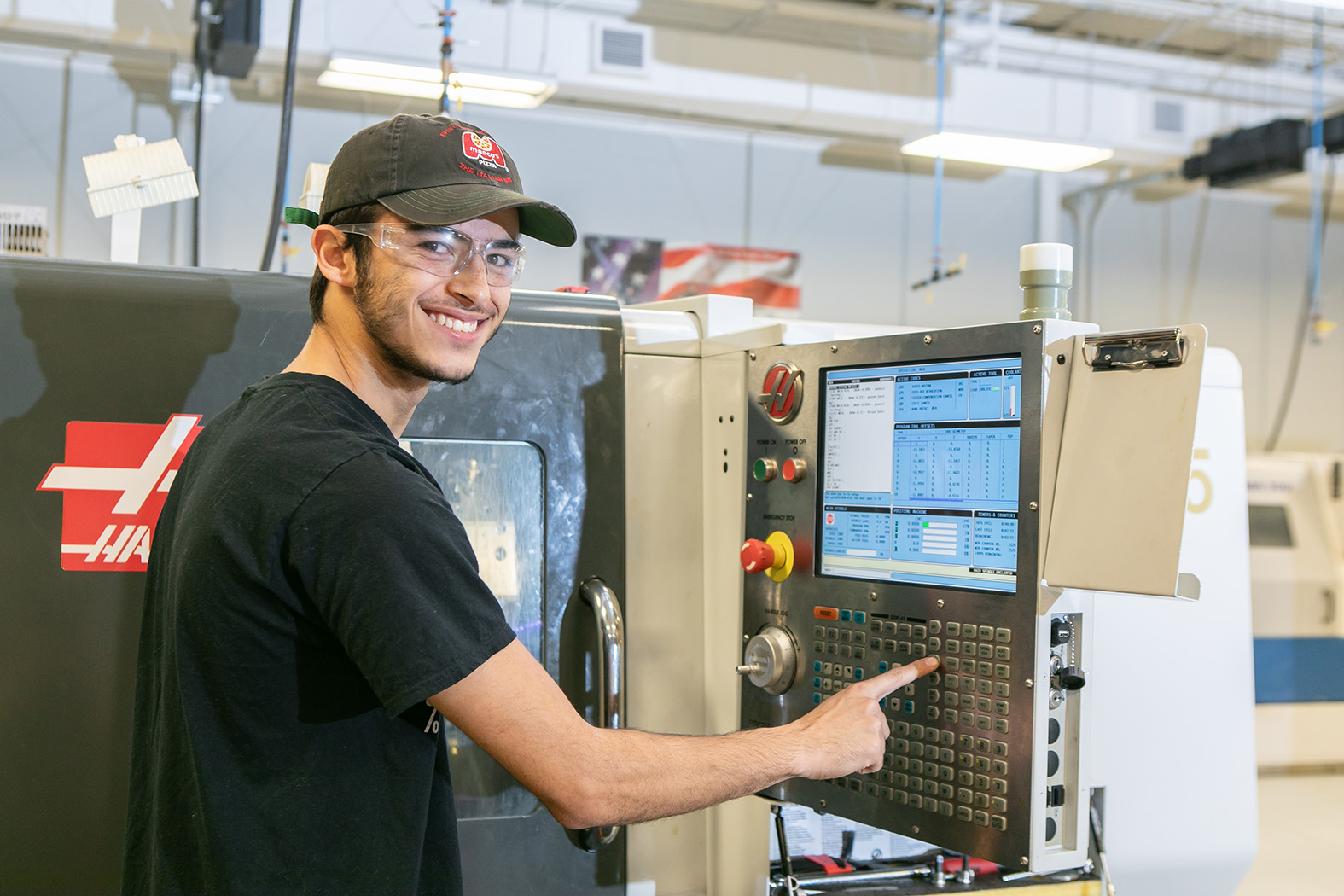
The Basic Machining and CNC Fundamentals Certificate develop skills in basic machining and computer numerical control (CNC) operations. Because of the fast-growing nature of industrial technology, those who have developed skills in CNC operations are always in demand. CNC operators usually enjoy security as well as good wages. This program teaches the student to take metal and cut, drill, and shape it into useful components. CNC opportunities abound, including the following types of positions: machine shop apprentice, tool room machinist apprentice, maintenance machinist, production machine operator, tool and die apprentice, machinery sales and service, and CNC operator. Students may also earn credentials through NIMS.
The Basic Machining and CNC Fundamentals Certificate is accredited by the National Institute for Metal Working Skills (NIMS).
This program is aligned with the following career cluster: Manufacturing
Program Contact:
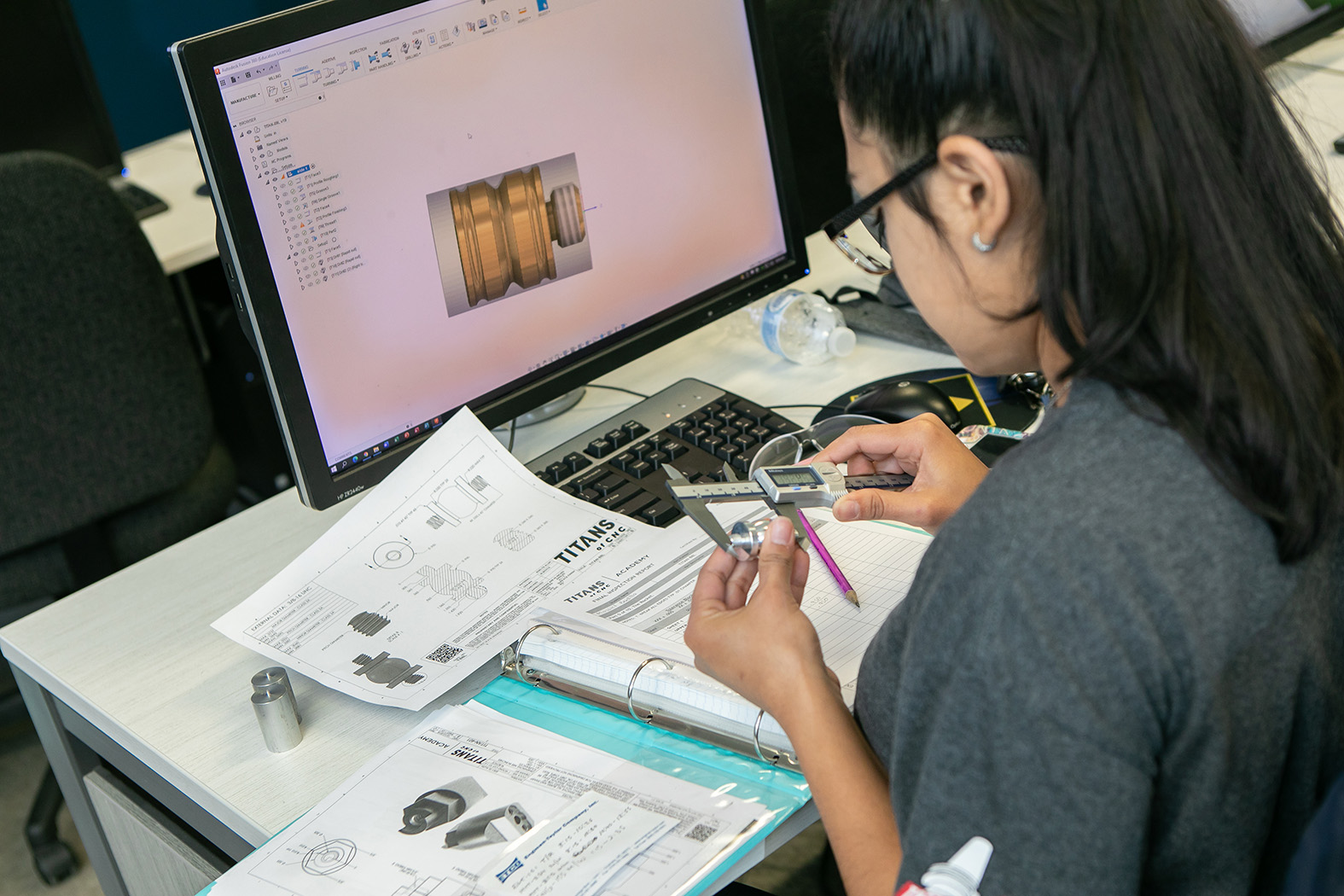
The Advanced CNC Programming Certificate develops skills in advanced machining and computer numerical control (CNC) operations. Because of the fast-growing nature of industrial technology, those who have developed skills in CNC operations are always in demand. CNC machinists usually enjoy security as well as good wages. This program teaches the student to take metal and cut, drill, and shape it into useful components. CNC opportunities abound, including the following types of positions: machine shop apprentice, tool room machinist apprentice, maintenance machinist, production machine operator, tool and die apprentice, machinery sales and service, and CNC machinist. Students may also earn credentials through NIMS.
The Advanced CNC Programming Certificate is accredited by the National Institute for Metal Working Skills (NIMS).
Students must successfully complete the Basic Machining and CNC Fundamentals Certificate prior to being admitted into the Advanced CNC Programming Certificate.
Program Contact:
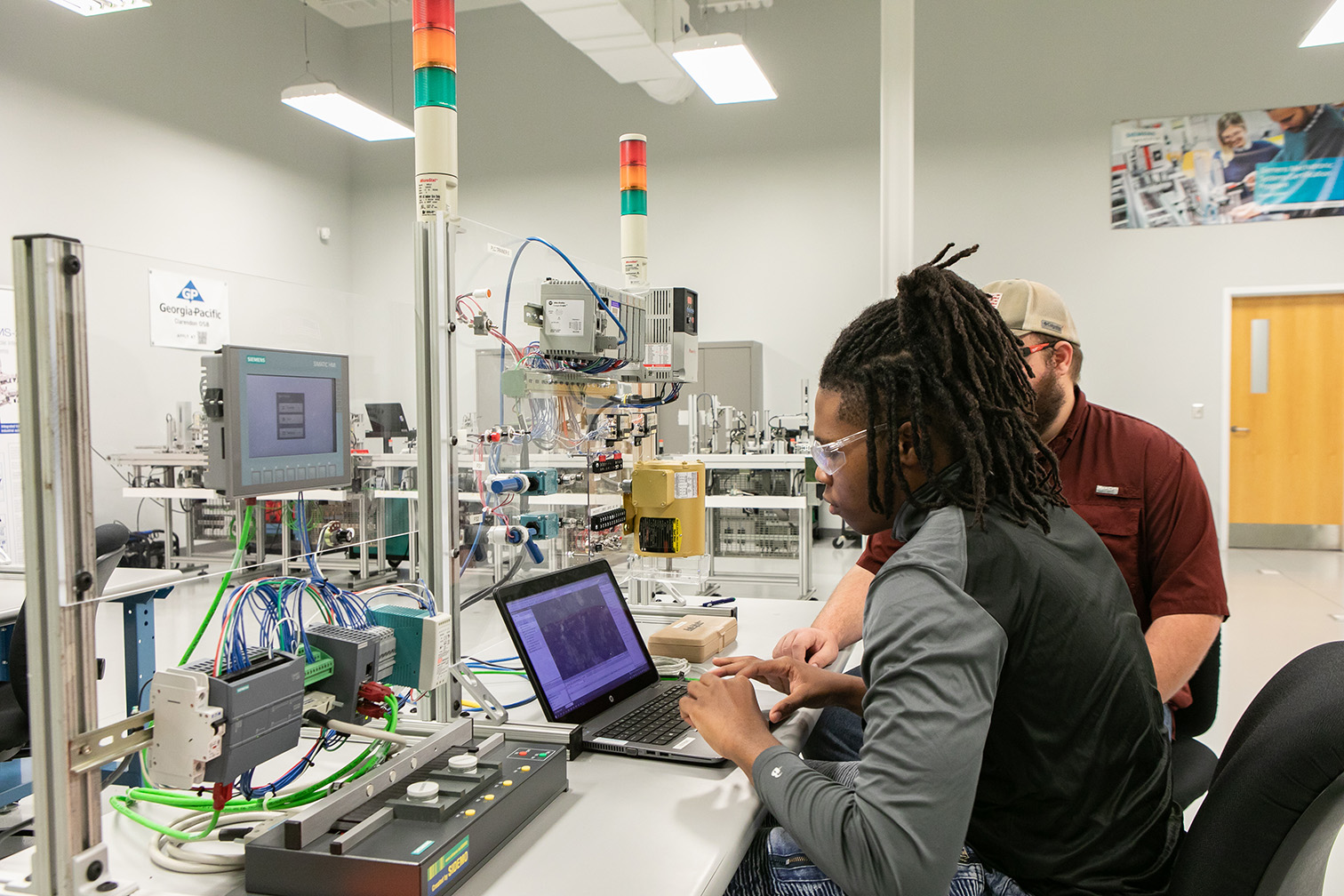
The Mechatronics Fundamentals Technician Certificate program is designed to provide technology specific training in a combination of classroom and lab settings to prepare graduates for entry-level jobs in the mechatronics fields of electricity, mechanical power, hydraulics, pneumatics, and hand and power tool applications.
This program is aligned with the following career cluster: Manufacturing.
Program Contact:
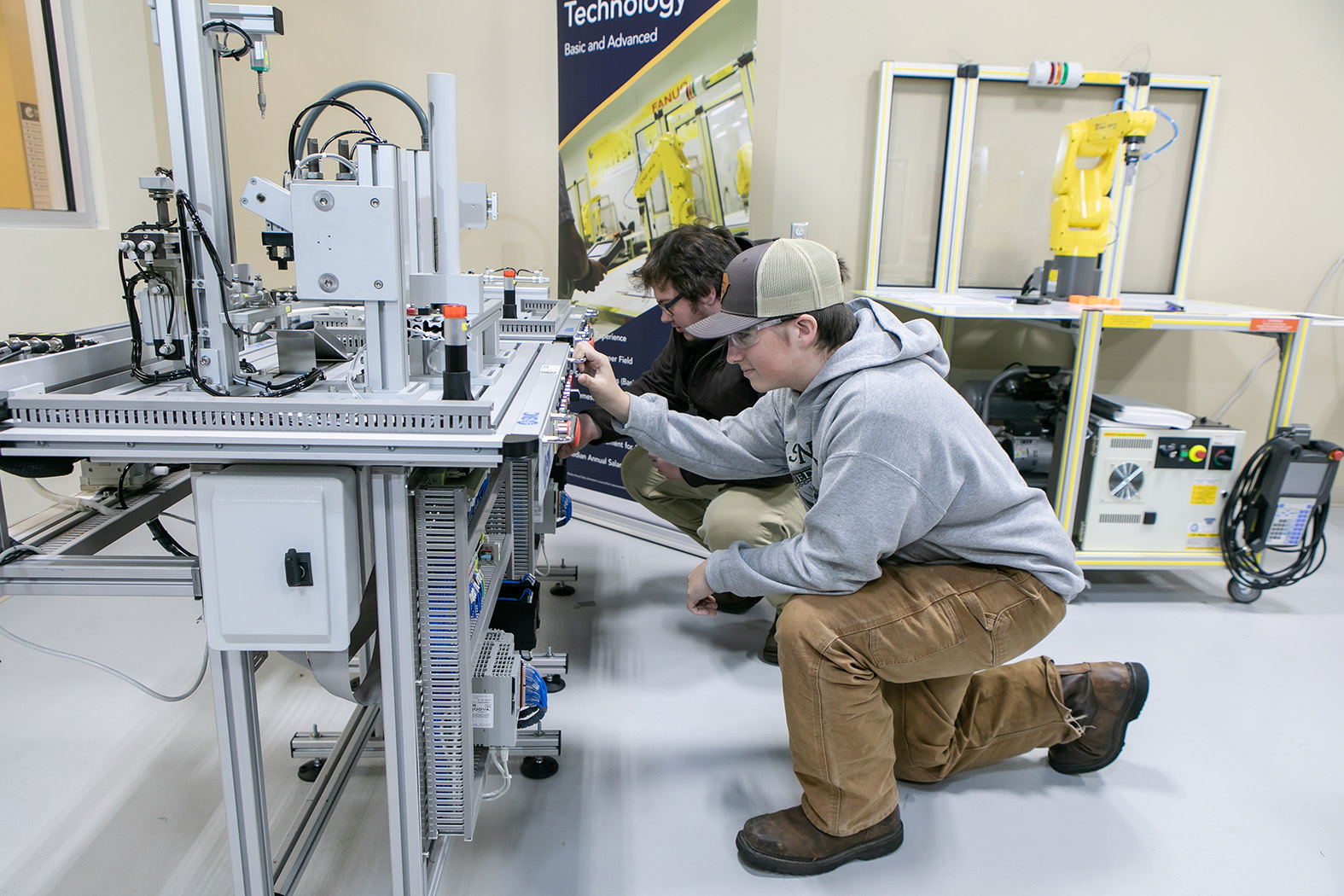
The Basic Mechatronics Technology Certificate program is designed to provide graduates with the necessary skills and knowledge to perform basic maintenance and repair of industrial equipment with both mechanical and electrical components.
This program is aligned with the following career cluster: Manufacturing
Program Contact:
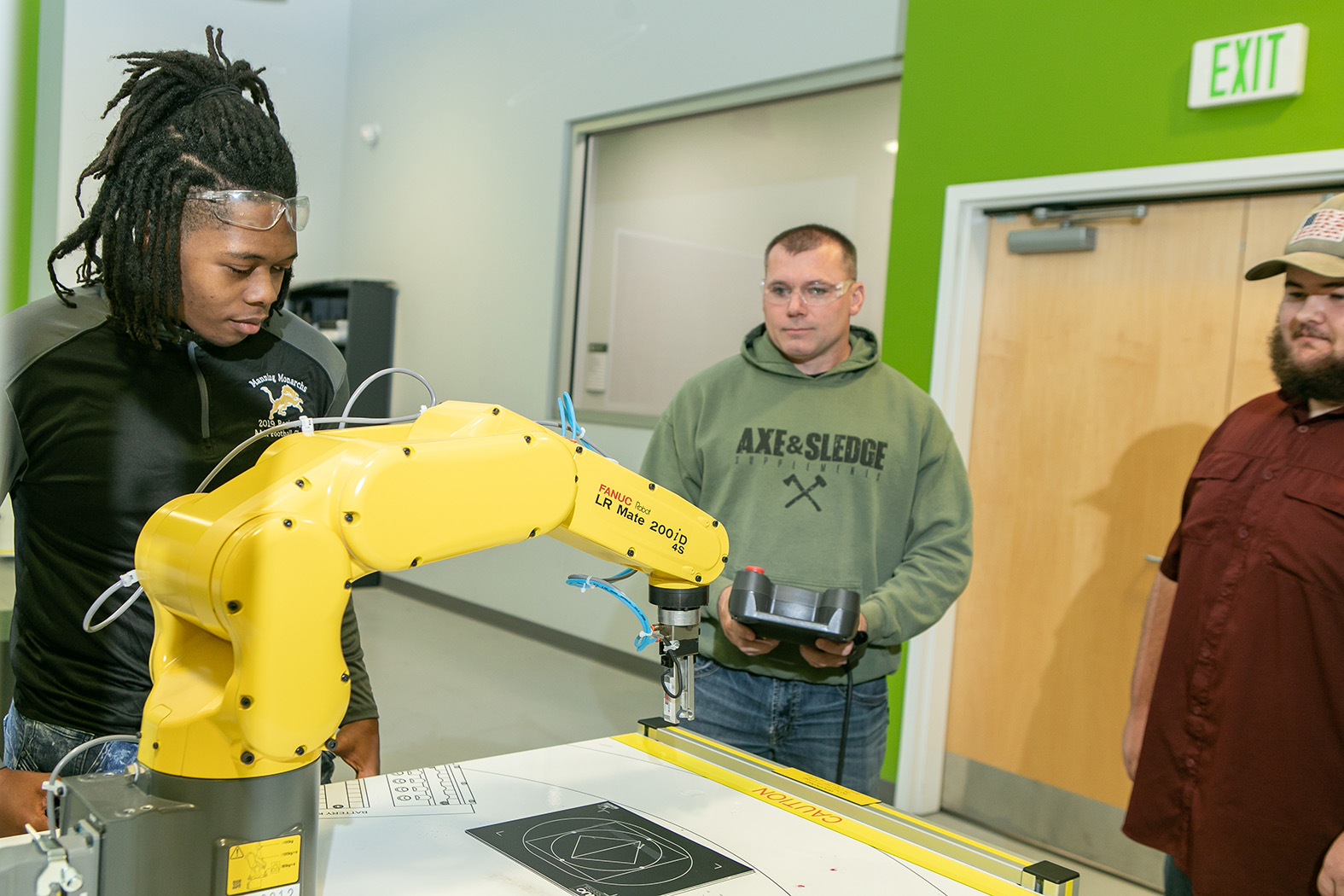
The Advanced Mechatronics Technology Certificate is designed to provide graduates with the necessary skills and knowledge to perform technical troubleshooting of industrial equipment with mechanical, electrical, and electronic components.
Students must successfully complete the Basic Mechatronics Certificate prior to being admitted into the Advanced Mechatronics Certificate.
This program is aligned with the following career cluster: Manufacturing
Program Contact:

The Advanced Certificate in Pipe Welding program is designed to take the student who is qualified in structural welding to the next step in the welding industry. Pipe welders are in high demand and require a higher level of expertise to meet industry demands. The Advanced Certificate in Pipe Welding is designed for the student to become proficient in pipe welding using multiple processes.
Students must successfully complete the Welding Certificate prior to being admitted into the Advanced Certificate in Pipe Welding program or pass a welding skills examination.
This program is aligned with the following career clusters: Architecture & Construction and Manufacturing.
Program Contact:

The Welding Certificate program is designed to provide knowledge and skills in the techniques of inert gas, oxyacetylene, electric arc welding, and plasma cutting. Job opportunities include erection welders, shipyard welders, welding shop fabrication, maintenance welders, construction welders, and structural steel welders.
This program is aligned with the following career clusters: Architecture & Construction and Manufacturing.
Program Contact:
Associate Degree
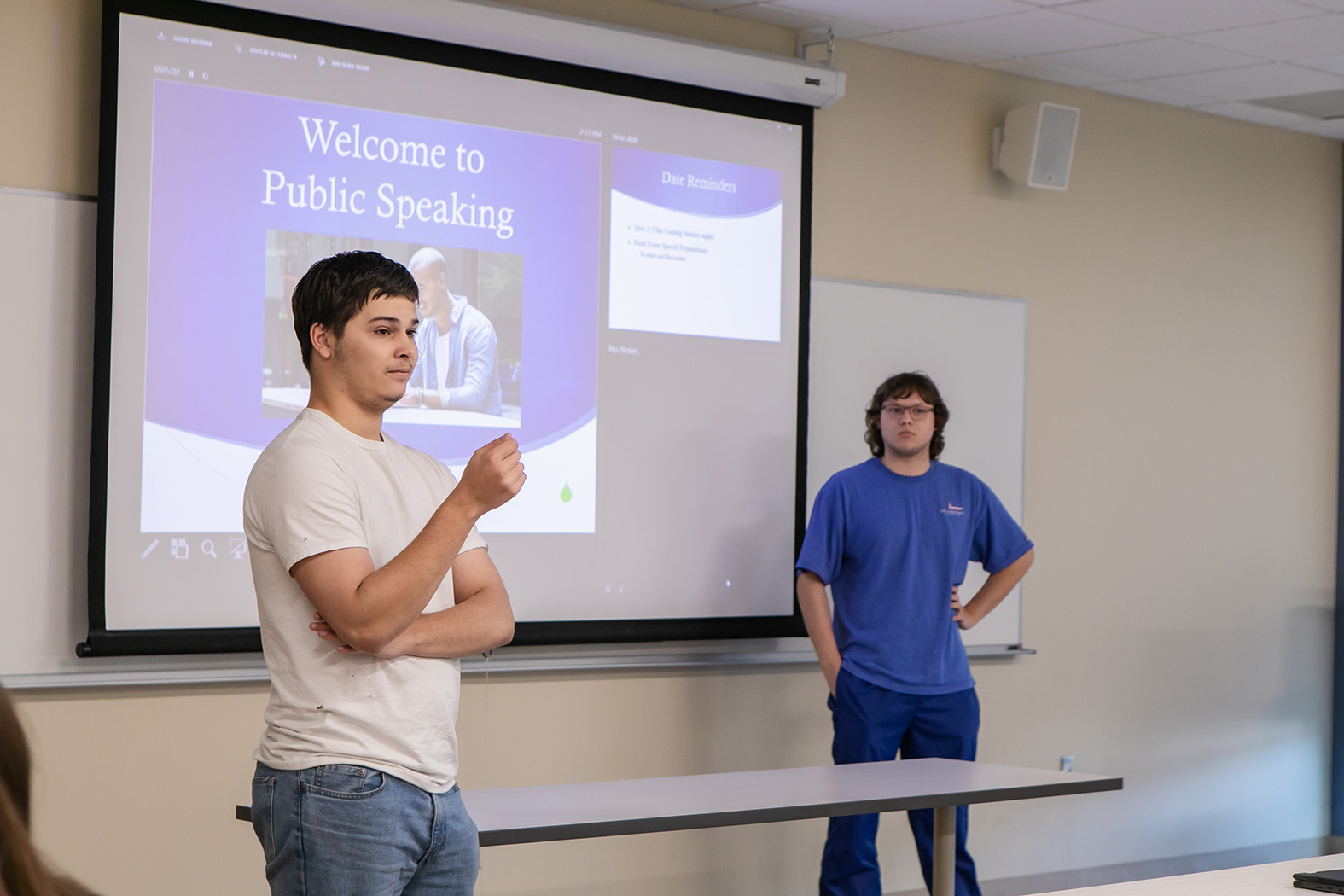
The Associate in Arts Degree can be completed in the evening by following the CCTC Evening College layout at https://www.cctech.edu/eveningcollege/. It can also be completed ONLINE
through selection of appropriate classes.
The Associate in Arts (A.A.) Degree program is designed for students who wish to enter fields related to the arts, humanities, or social sciences. Related areas of emphasis include elementary education, secondary education, business education, physical education, recreation, English, foreign languages, business administration, public administration,
geography, history, international studies, law, political science, psychology, counseling, social work, sociology, journalism, speech, and/or theater.
Requirements for specific majors at senior institutions may vary. Therefore, it is the responsibility of students to plan a program of study to meet the requirements of the college to which the student expects to transfer. It is strongly recommended that students consult the college/university to which they plan to transfer to ensure that courses taken at Central Carolina Technical College meet the senior institution’s requirements for the desired four-year degree. Informed academic advisors are available to assist students.
The length of time required to complete a University Transfer Program is dependent upon the number of courses in which the student enrolls each semester. See Statewide Articulation Agreement: Technical College Courses Transferable to Public Senior Institutions in the General Information section of this catalog. For more information, go to www.sctrac.org.
Program Contact:
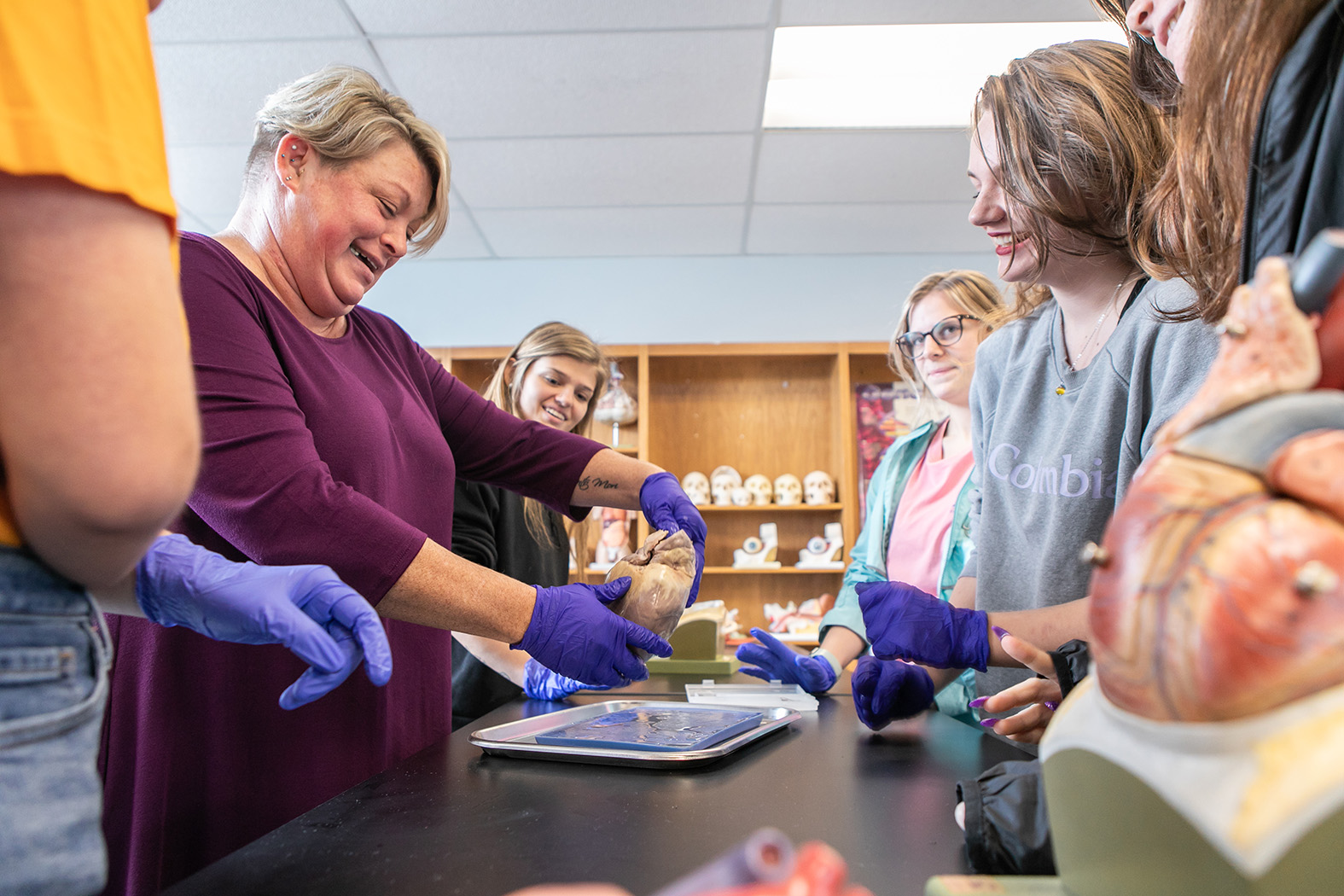
The Associate in Science Degree can be completed in the evening by following the CCTC Evening College layout at https://www.cctech.edu/eveningcollege/. It can also be completed ONLINE
through selection of appropriate classes.
The Associate in Science (A.S.) Degree program emphasizes mathematics and natural and physical sciences and is designed for students who wish to enter fields related to mathematics or sciences. Areas of emphasis include secondary education, and/or professional areas of health, medicine, engineering, business, and computer science.
Requirements for specific majors at senior institutions may vary. Therefore, it is the responsibility of the students to plan a program of study to meet the requirements of the college to which they expect to transfer. It is strongly recommended students consult the college/university to which they plan to transfer to ensure that courses taken at Central Carolina Technical College meet the senior institution’s requirements for the desired four-year degree. Informed academic advisors are available to assist students.
The length of time required to complete a University Transfer Program is dependent upon the number of courses in which the student enrolls each semester. See Statewide Articulation Agreement: Technical College Courses Transferrable to Public Senior Institutions in the General Information section of this catalog and visit the following website: www.sctrac.org.
The Associate in Science Degree can be obtained completely ONLINE
through selection of appropriate classes.
Program Contact:

The Accounting Associate Degree in Applied Science program prepares students to systematically record, interpret, and present financial data. According to forecasts, accountants are near the top of the list of promising careers for the future. Career opportunities include entry positions such as general accounting, payroll, accounts receivable, and accounts payable. Selected accounting classes are available during the day and evening.
This program is aligned with the following career cluster: Finance.
Program Contact:
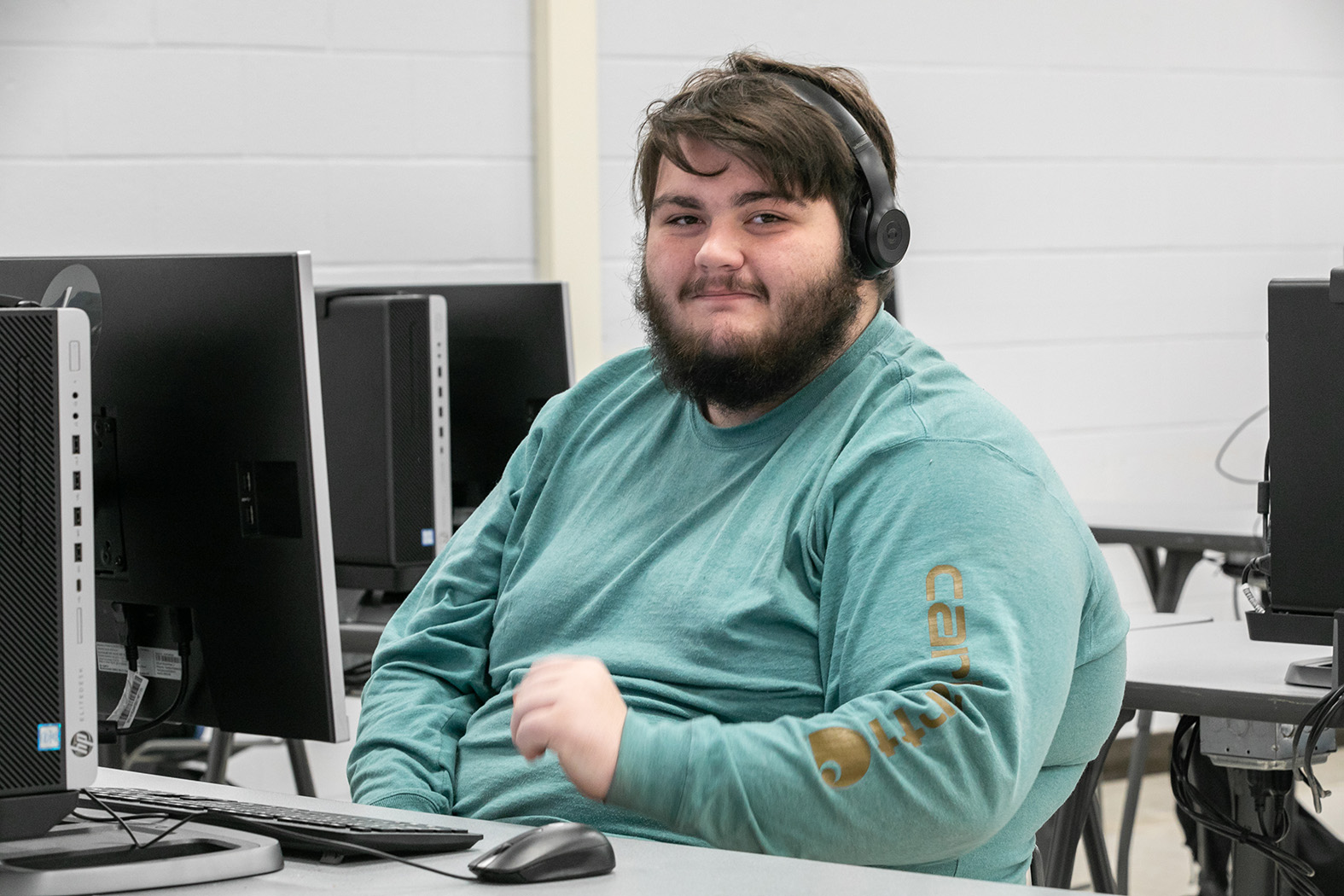
The Computer Technology Associate Degree in Applied Science program provides students with the opportunity to learn the necessary skills to use state-of-the-art computer systems to solve business and information systems related problems. The program focuses on developing problem-solving and decision-making skills employing microcomputers and associated technology. The curriculum includes three certificate programs consisting of courses in programming, cybersecurity; students may also pursue a concentration in networking or as an alternative to the certificate, a concentration in cybersecurity. These advanced courses allow students to choose a specific career path in the information systems field.
The utilization of popular microcomputer word processing, database, spreadsheet, and specialized software packages is required for successful completion of the microcomputer courses. Programming courses in Smart BASIC, Python, Node. JS, Java, and JavaScript are also included in the curriculum. To complement the language development courses, students must successfully complete studies in operating systems, Internet communications, database design and management, and computer systems hardware and software maintenance. Upper-level courses in the curriculum include both the theory and hands-on application of data communications technology, local area networks (LANs), programming, web development, and systems analysis and design procedures. Authorized certification course materials (MOS, ITF+, A+, Network+, Security+, MCSE, MTA, and CCNA) are used in a variety of the courses. Students are encouraged to obtain appropriate professional certifications.
Career opportunities include computer operator, hardware/software technician, application programmer, programmer/analyst, network manager, network administrator, applications specialist, web specialist, end-user support technician, information security analyst or help-desk specialist.
The Computer Technology Associate Degree Program requires at least a grade of “C” in all of the courses offered within the CMPT curriculum for the grade to be counted toward graduation. Specifically, these include courses with the following prefixes: CPT and IST.
Certificate Programs and Concentration(s)
Prior to the beginning of the fall semester of their second year of study, students in consultation with their academic advisor, should choose a certificate program or concentration as an area of specialization.
This program is aligned with the following career cluster: Information Technology
Program Contact:

The Management Associate Degree in Applied Science program is a study of the art and science of directing a business toward its desired goals. The program develops management, communication, mathematics, and problem-solving skills required in supervisory and leadership positions. In addition, critical business topics such as accounting, economics, finance, and information processing technology are introduced.
This program is aligned with the following career cluster: Business, Management & Administration.
Program Contact:

The Criminal Justice Technology Associate Degree in Applied Science program seeks to develop an understanding of the causes and the prevention of crime, impacts of human behavior, the legal system, and the organization and conduct of criminal justice functions. The curriculum provides essential knowledge of the functions and prevalent problems of criminal justice agencies and the organizational, legal, and social context within which they operate. The program meets the needs of in-service students who seek to improve their professional qualifications and of those students who are preparing for employment with criminal justice agencies.
Career opportunities include employment with municipal, county, and state law enforcement agencies and court systems; industrial/retail security; social service agencies; juvenile justice; and correctional agencies. In addition, Central Carolina Criminal Justice Technology courses may be used for recertification credit with the South Carolina Criminal Justice Academy.
Courses in this program are offered during the day, evening, and through distance learning. Once admitted, students must earn a grade of “C” or higher in each major course.
This program is aligned with the following career cluster: Law, Public Service, and Corrections & Security.
Specific/Special Admission Information
Students should be aware that many positions in the Criminal Justice field require no previous criminal convictions (i.e., DUI, bad check convictions, open container convictions, excessive traffic convictions, etc.). A favorable credit history may also be required as a requirement for employment.
Program Contact:

The Early Care and Education Associate Degree in Applied Science program is designed to prepare individuals for employment in a variety of educational and child care programs for children from birth through school age. Recent research and interest in the importance of education of children during the first three years of life has provided for a growing number of new opportunities in the field. Graduates are prepared to assume positions in programs such as Head Start, Early Head Start, public schools, childcare, after-school care, public or private preschools or kindergartens, or working with children with special needs.
Courses in the program are available in a variety of formats.
Students entering this program of study must furnish a copy of High School Diploma or GED Certificate.
The Associate Degree in Applied Science with a major in Early Care and Education does not lead to teacher licensure, but opportunities for transfer to senior colleges and universities are available. The T.E.A.C.H. South Carolina Scholarship program may be available for persons already employed in child care.
*Required for student to obtain the South Carolina Early Childhood Credential.
**Required for students to obtain the South Carolina School-Age Credential
***Intended for those desiring to transfer.
This program is aligned with the following career cluster: Education & Training.
The Associate of Applied Science in Early Care and Education is accredited by the Commission on the Accreditation of Early Childhood Higher Education Programs of the National Association for the Education of Young Children. The current accreditation term runs from June 2021 through July 2028.
Click here for Candidate Learning Objectives and Outcomes
Click here for NAEYC Data Report
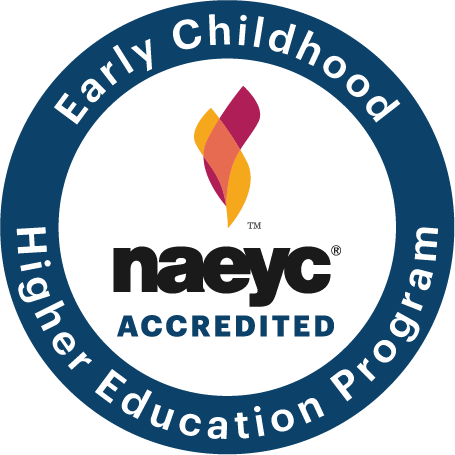
Program Contact:

The Associate Degree in Applied Science with a Major in Human Services targets those individuals who have a strong desire to help others within their community. The Human Services professional is an important link to helping others fulfill their potential. The Associate Degree provides students with the necessary core knowledge to maximize their success in providing a positive impact for clients. The program requires all graduates to complete two semesters of field placement where students will experience on-the-job training in a community facility. Course work includes topics that will prepare graduates for employment opportunities in federal, state, and local service organizations.
The Associate Degree in Applied Science with a Major in Human Services prepares graduates to work in environments that provide assistance to various populations, such as the elderly, people with disabilities or mental illness, victims of domestic violence, the homeless, people with chemical dependencies, and many others. The Associate Degree in Applied Science with a Major in Human Services is accredited by the Council for Standards in Human Services Education.
Prior to HUS 250 and HUS 251 students must submit information and fees for criminal background checks. A criminal record could make you ineligible to complete field placement and graduate from the program. All Human Services (HUS) courses must be completed with a grade of “C” or better in order to count toward graduation.
Enrollment Data
Student Achievement Indicators
Human Services AAS Outcomes Assessment (PDF)
Mission Statement and Program Outcomes
Mission – To prepare graduates for employment in numerous helping professions and/or transfer to baccalaureate programs in human services or related fields. Graduates have the skills, knowledge and ethics of the human service discipline in order to provide services in a wide variety of agency programs and community settings.
2018-19 Student Learning Outcomes
- Demonstrate the ability to identify components of the interview/assessment process and applications.
- Develop awareness of their own values, personalities, reaction patterns, interpersonal styles and limitations.
- Demonstrate knowledge of issues related to the ethical standards of the human services profession and the ability to follow ethical guidelines.
- Demonstrate knowledge of theories and skills in order to assist various human systems: families, small groups, organizations and social systems.
- Demonstrate the ability to be productive and effective in a human services delivery system and an understanding of their role, abilities and limitations as an entry-level human services worker.
- Basic understanding of crisis intervention skills and applications.
- Demonstrate the knowledge of the history of the human services profession and the evolution of its various delivery systems.
- Demonstrate knowledge and skills in systematic analysis of service needs; planning appropriate strategies, services, and implementation; and evaluation of outcomes.
Mission Statement and Program Outcomes (PDF)
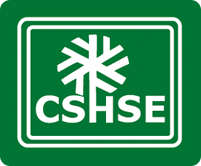
The program is aligned with the following career cluster: Human Services.
Program Contact:
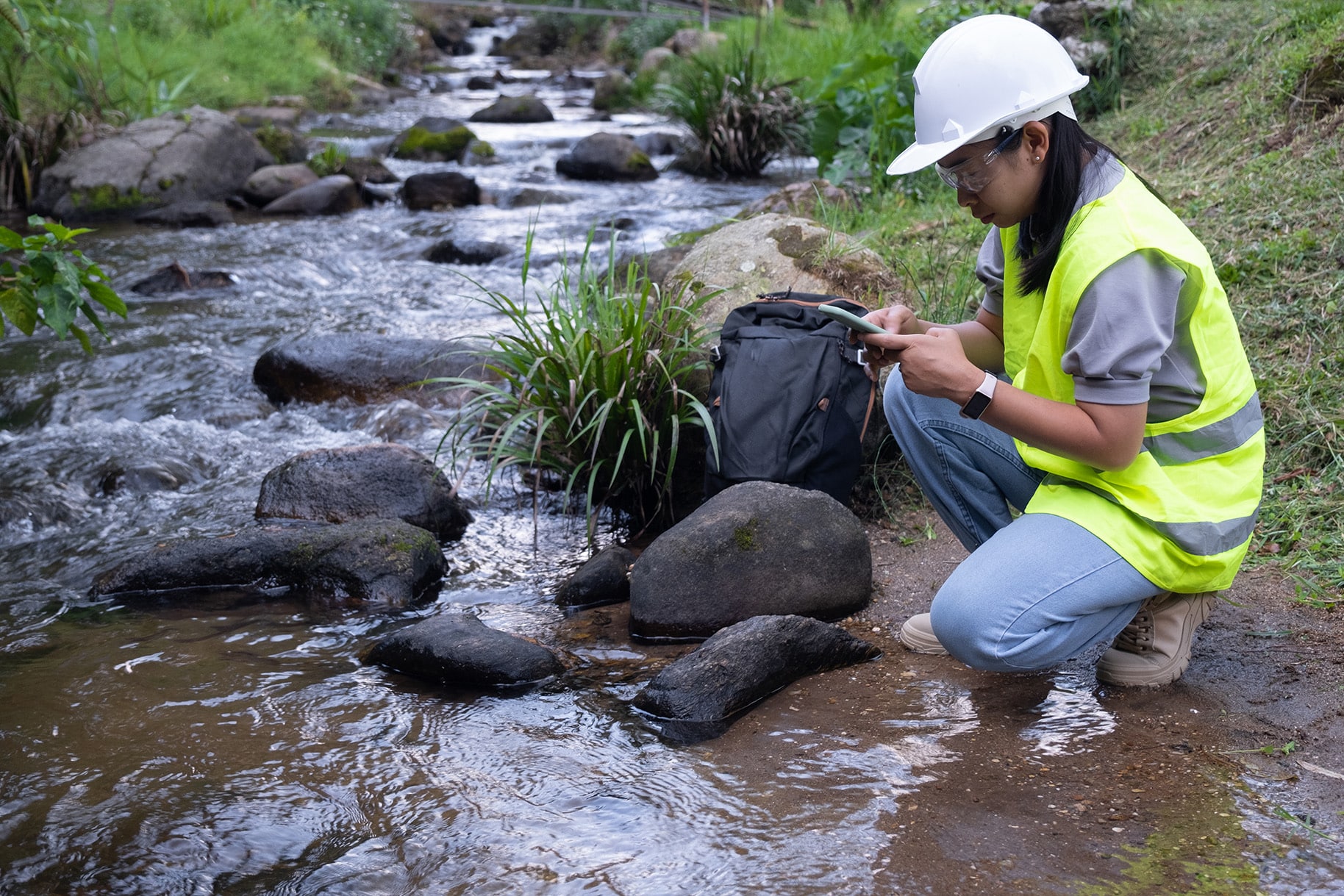
Students in the Environmental Engineering Technology Associate Degree in Applied Science program explore the relationships between the human race and the dynamic environment in which they live. They examine the effects of pollution using applied math and science skills. Students also determine strategies to minimize or prevent waste in order to reduce the impact on the environment. They discuss innovative solutions to environmental issues and determine ways to improve processes and protect people from hazardous and toxic chemicals. Most importantly, students acquire skills and knowledge they can adapt to a variety of environmental, health, and safety career opportunities. Career opportunities include health and safety manager in industry, treatment facility operator in municipalities, engineering technician, laboratory technician in environmental monitoring laboratories, and environmental quality technician for state and federal regulatory agencies.
This is an online program. Select General Education courses may also be offered in a traditional format on campus.
This program is aligned with the following career cluster: Science, Technology, Engineering & Mathematics.
Program Contact:

The Natural Resources Management Associate Degree in Applied Science program is designed to prepare students for a career in the management and protection of natural resources. Success in this field requires the technician to have a broad background in the biological and agricultural sciences as well as manual skills. This is achieved through a balance between classroom time, distance learning, and outdoor learning activities. Successful graduates will know the proper use, development, conservation, and management of wildlife, wetlands, and woodlands and the ecosystems that support them.
Students can take the entire program online, but those looking for hands-on experiential learning can take the Technicians Skills courses. This series of classes require hands-on labs held at select locations throughout the semester. The student discuss these options with their academic advisor at the beginning of the program of study.
Career opportunities exist with landowners; local, state, and federal agencies; and private industry engaged in the development and wise stewardship of natural resources. Students in this program. have flexible education options for transfer to four-year degree programs and entry directly into the field as technicians.
This program is an online program.
*Students interested in the online program format may substitute the NRM Technician Skills I, II, III courses with an online Departmental Elective.
**PHI 110 Ethics recommended as the Humanities/Fine Arts elective.
***Students who are interested in law enforcement careers in the NRM field are encouraged to take CRJ 101 as their Social/Behavioral Science Elective.
This program is aligned with the following career cluster: Agriculture and Food & Natural Resources.
Program Contact:
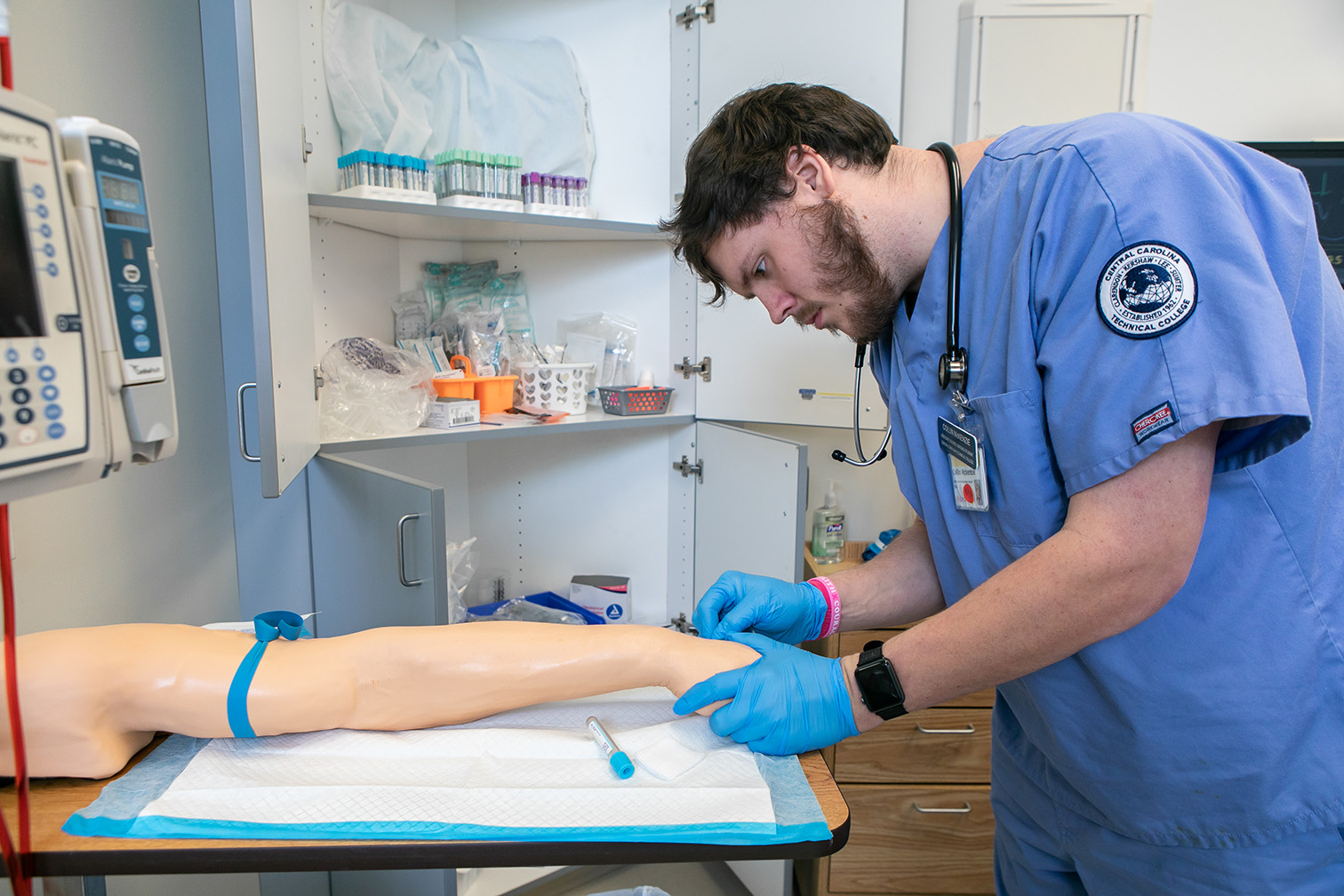
The Associate Degree Nursing (ADN) program prepares graduates to function as competent registered nurses who are caring and sensitive to diversity and use critical thinking and technology to provide care in structured settings for patients and their families/significant others. Throughout the program, the student has planned clinical experiences to complement classroom learning and to enhance skills in the application of nursing principles and associated technology. The scheduling of clinical experiences varies throughout the nursing program.
The Associate Degree Nursing program at Central Carolina Technical College at the Health Sciences Center located in Sumter, South Carolina is accredited by the: Accreditation Commission for Education in Nursing (ACEN) 3390 Peachtree Road NE, Suite 1400 Atlanta, GA 30326, Phone (404) 975-5000, www.acenursing.org. The most recent accreditation decision made by the ACEN Board of Commissioners for the Associate Degree Nursing program is Continuing Accreditation.
The Associate Degree Nursing Program is approved by the South Carolina Labor, Licensing, and Regulation Board of nursing, 110 Centerview Drive, Columbia, SC 29210, Phone (803) 896-4300, https://llr.sc.gov/nurse/.
Requirements for the program are subject to change without notice in order to meet requirements of the South Carolina LLR Board of Nursing, the South Carolina Technical College System, and ACEN.
Successful completion of the ADN program does not guarantee licensure to practice as a registered nurse.
Program Contact:
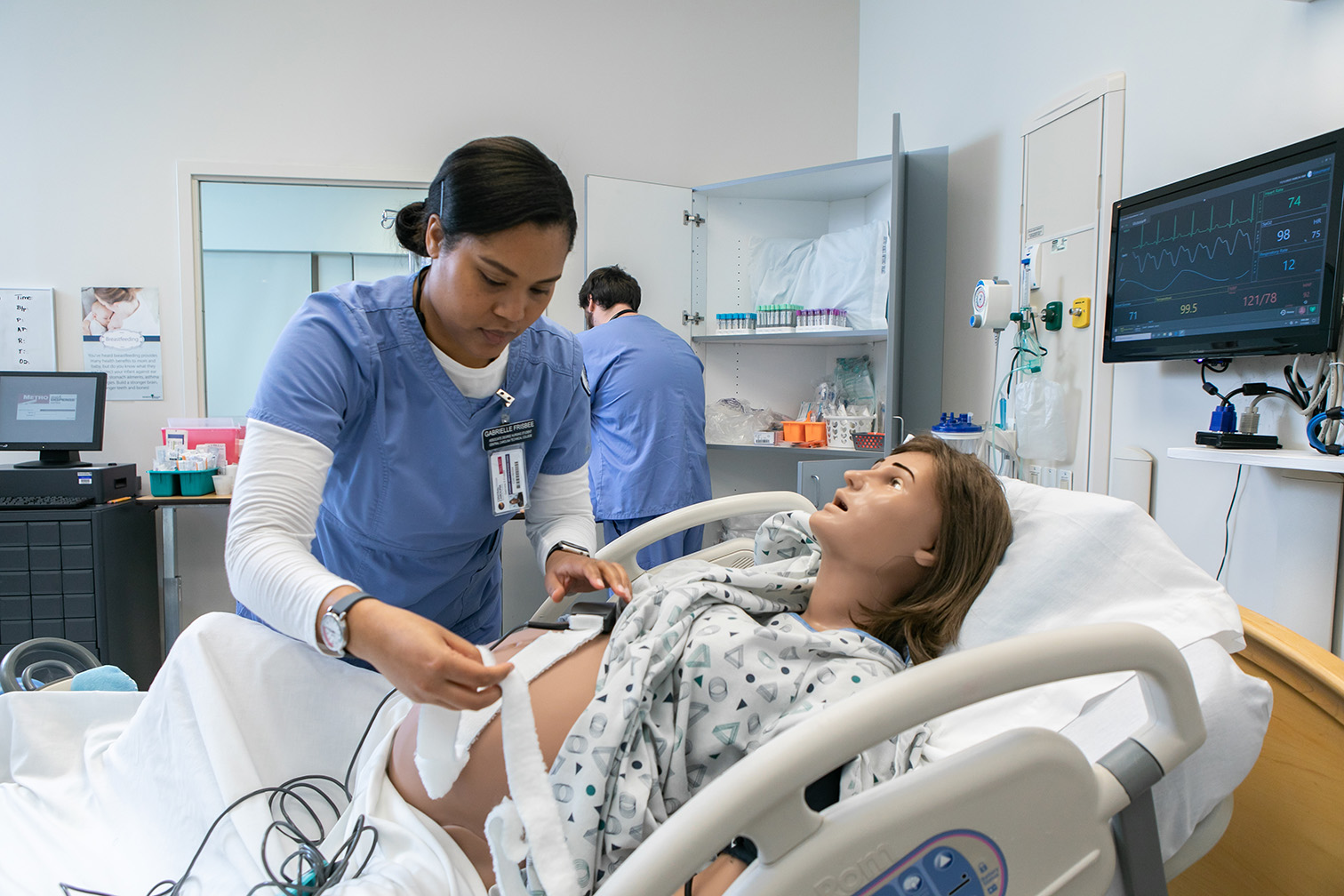
The Transition Nursing Option provides qualified licensed practical nurses (LPN) and qualified paramedics the opportunity for advanced placement into the Associate Degree Nursing (ADN) program. The ADN program prepares graduates to function as competent nurses who are caring and sensitive to diversity, use critical thinking and technology to provide care in structured settings for patients and their families/significant others. Throughout the program, the student has planned clinical experiences to complement classroom learning and to enhance skills in the application of nursing principles and associated technology. The scheduling of clinical experiences varies throughout the nursing program.
The Associate Degree Nursing program is accredited by the Accreditation Commission for Education in Nursing (ACEN), 3390 Peachtree Road NE, Suite 1400, Atlanta, Georgia 30326, (404)975-5000 www.acenursing.org. The most recent accreditation decision made by the ACEN Board of Commissioners for the Associate Degree Nursing program is Continuing Accreditation.
The ADN program prepares graduates to apply to take the National Council Licensing Examination for Registered Nurses (NCLEX-RN) and is approved by the South Carolina Department of Labor, Licensing, and Regulation (LLR) Board of Nursing, 110 Centerview Drive, Columbia, SC 29210, (803)896-4300, https://llr.sc.gov/nurse.
Requirements for the program are subject to change without notice in order to meet requirements of the South Carolina LLR Board of Nursing, the South Carolina Technical College System, and ACEN.
Successful completion of the ADN program does not guarantee licensure to practice as a registered nurse.
Program Contact:
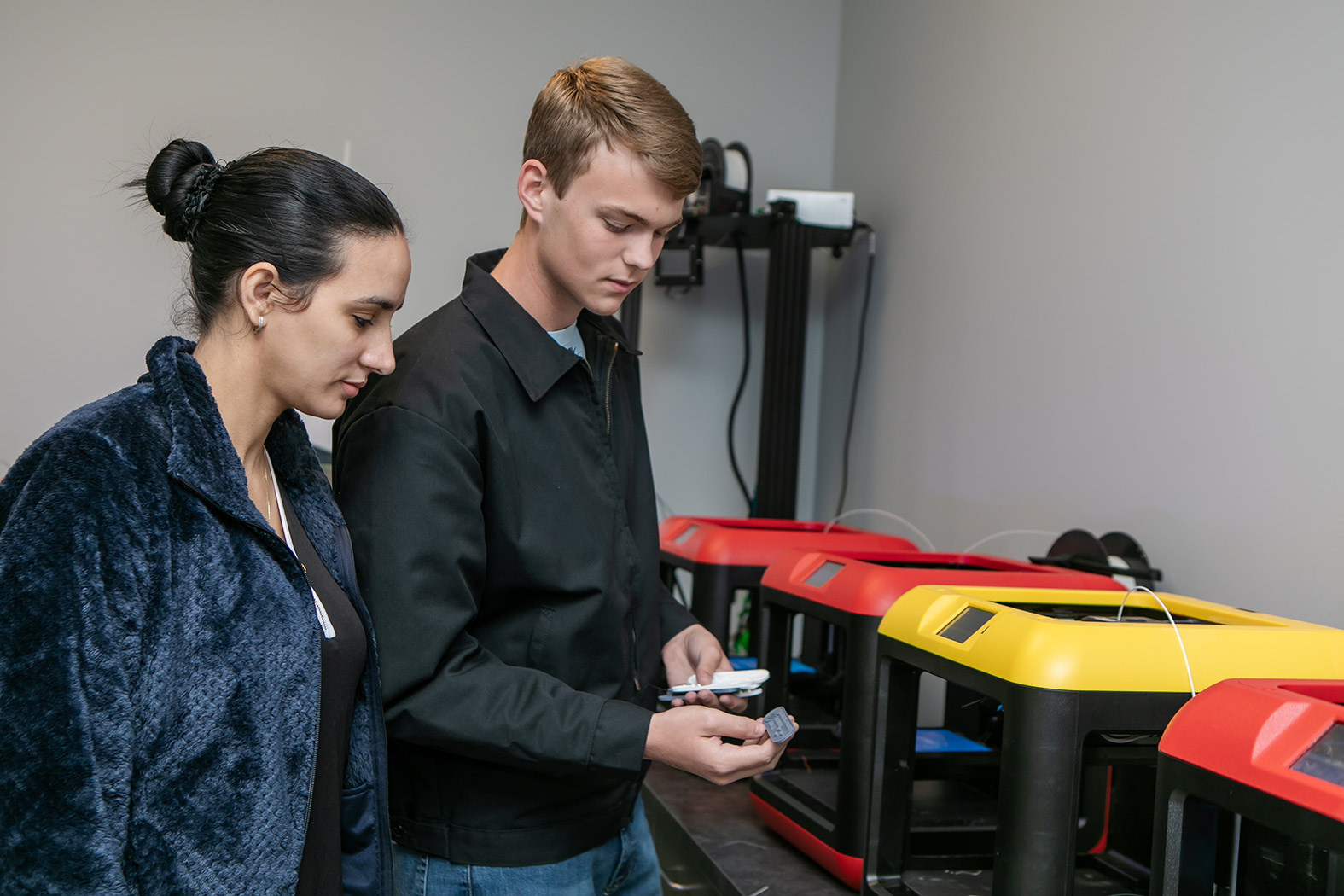
The Engineering Design Technology Associate Degree in Applied Science program is designed to give students the skills essential for success in the rapidly changing field of engineering design technology. Hands-on experience familiarizes students with computer-aided design (CAD) technology. Students learn to develop technical drawings with an emphasis on working drawings and three dimensional solid modeling as they are applied in industrial, manufacturing, engineering and architectural environments.
Excellent employment opportunities are available for graduates, including positions as engineering technicians, detailers, and CAD technicians.
This program is aligned with the following career clusters: Science, Technology, and Engineering & Mathematics.
Program Contact:
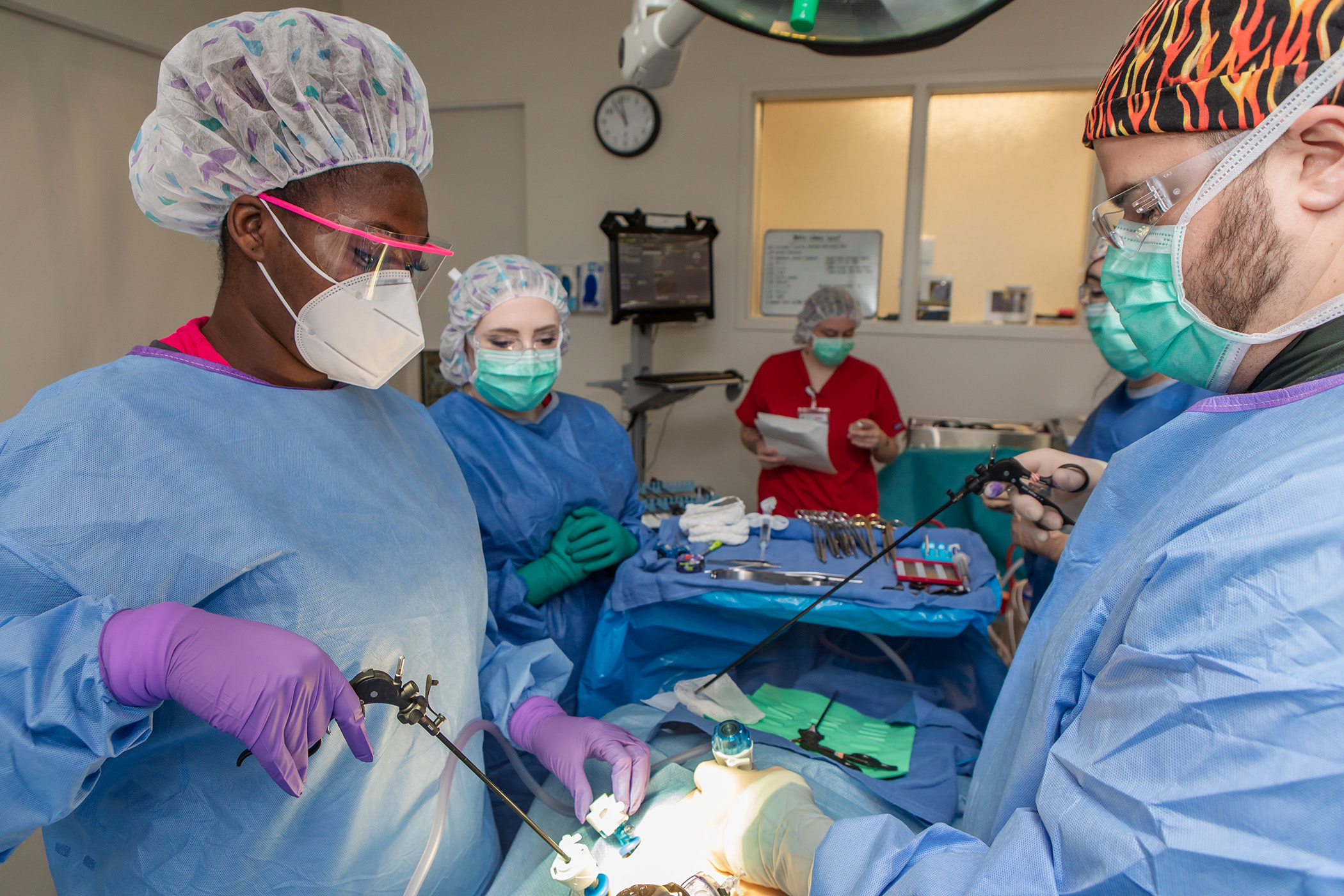
The Surgical Technology Associate Degree in Applied Science program is designed to prepare individuals for work closely with surgeons, anesthesiologists, registered nurses and other surgical personnel in delivering patient care and assuming appropriate responsibilities before, during and after surgery. The primary responsibility of the surgical technologist is to maintain the sterile field while ensuring that all other members of the surgical team adhere to aseptic technique.
The qualified candidate will have excellent eye-hand coordination, effective communication skills, an affinity for detail and the ability to function well in stressful situations. Knowledge of human anatomy, surgical instrumentation, supplies and procedures allows the surgical technologist to function as an integral member of the surgical team. Program graduates will be eligible to take the National Board of Surgical Technology and Surgical Assisting (NBSTSA) certification examination for designation as a Certified Surgical Technologist (CST) and will be qualified for employment in many diverse areas of the health care systems, such as the following: operating rooms, emergency rooms, labor and delivery, GI and cardiac catheterization labs, ambulatory surgery centers, sterile supply, cell saver technologist, private physician’s scrub surgical technologists, instrument sales representatives and veterinary assistants.
The Surgical Technology Program is accredited by the Commission on Accreditation of Allied Health Education Programs (CAAHEP) 9355 – 113th St. N. #7709, Seminole, FL 3375, Phone (727) 210-2350, www.caahep.org, upon the recommendation of the Accreditation Review Council on Education in Surgical Technology and Surgical Assisting (ARC/STSA), 19751 East Main Street, Suite 339 Parker, CO 80138, Phone (303) 694-9262, www.arcstsa.org.
Application for admission to the Surgical Technology program is based on a competitive admission process: therefore, meeting the minimum admission criteria does not guarantee acceptance into the program.
Program Contact:
Diploma
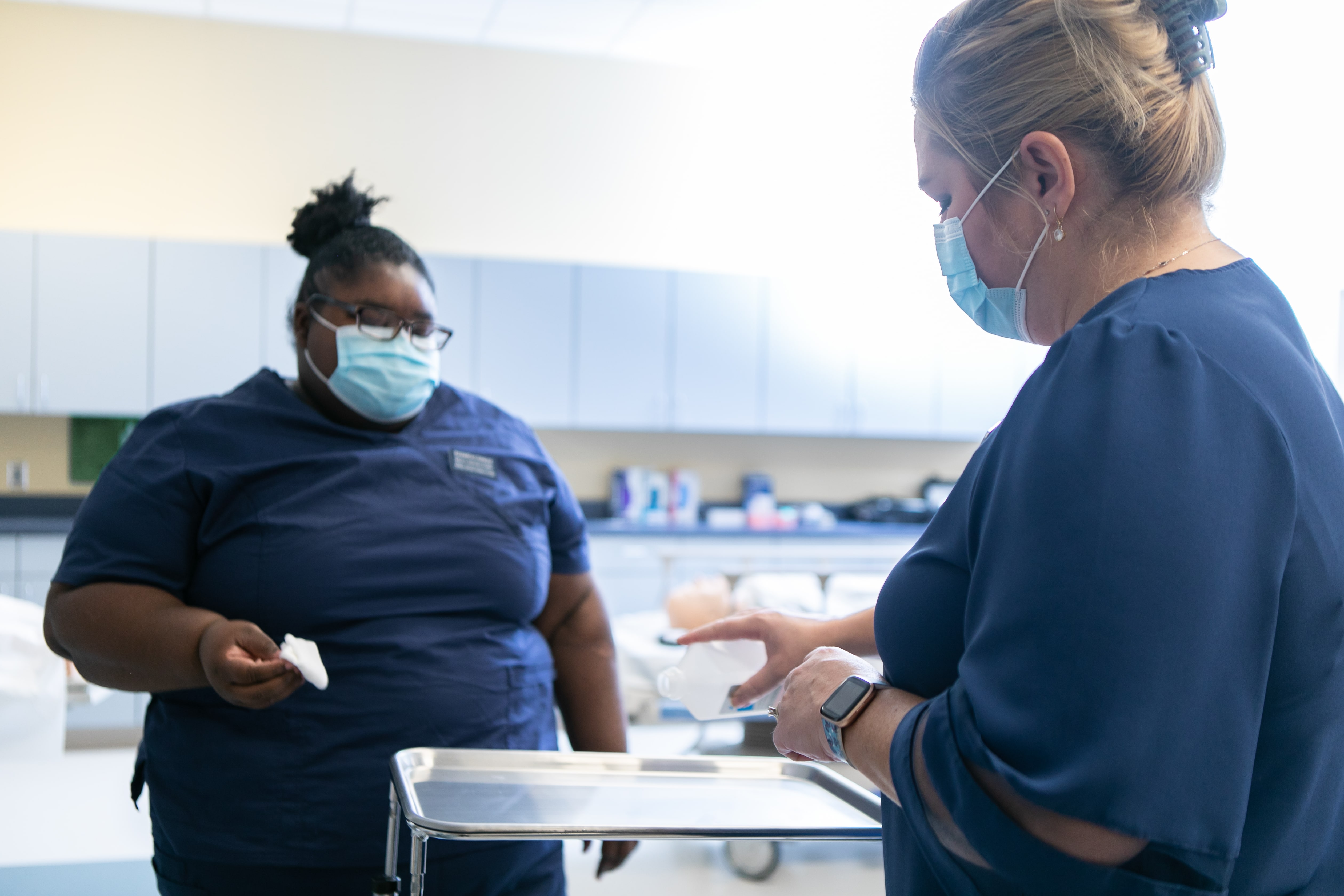
The Medical Assisting Diploma in Applied Science program prepares graduates to assist other health care professionals in offices and/or other medical settings and perform delegated administrative and clinical duties in accordance with respective federal and state laws governing such actions, activities, and ethical standards. The mission of Central Carolina Technical College’s Medical Assisting Program is to prepare medical assistants who are competent in the cognitive (knowledge), psychomotor (skills), and affective (behavior) learning domains to enter the profession.
Upon successful completion of the Medical Assisting program, the graduate is eligible to take the Certification exam as a RMA (Registered Medical Assistant-American Medical Technologists) and/or as a CMA (AAMA), (Certified Medical Assistant- American Association of Medical Assistants). Note: Certification examination eligibility may be denied to applicants with criminal convictions.
The Central Carolina Technical College Medical Assisting Diploma program is accredited by the Commission on Accreditation of Allied Health Education Programs (www.caahep.org) upon the recommendation of the Medical Assisting Education Review Board (MAERB), Commission on Accreditation of Allied Health Education Programs, 9355 – 113th St. N, #7709, Seminole, FL 33775
The Central Carolina Technical College Medical Assisting Diploma program has had the following outcomes:
- Job placement rate of 87.5% for the August 2020 graduates.
Program Goals
The Central Carolina Technical College Medical Assisting Diploma program employs the following core indicators as measures of the effectiveness of the program:
- The educational program will meet or exceed the standards of Central Carolina Technical College, SBTCE, SACSCOC, Commission on Accreditation of Allied Health Education Programs (CAAHEP) on recommendation of the Medical Assisting Education Review Board (MAERB).
- To prepare medical assistants who are competent in the cognitive (knowledge), psychomotor (skills) and affective (behavior) learning domains to enter the profession.
- 70 percent of those entering the program will graduate at the end of one and one half times the program length.
- 70 percent of graduates will be employed in the field or continue in an educational program within 6-9 months of graduation.
- 80 percent of graduates will rate the overall program as satisfactory.
- 80 percent of employers will rate the graduate of the program as satisfactory.
- 70 percent of graduates will pass the credentialing examination Certified Medical Assistant-CMA (AAMA) (American Association of Medical Assistants) and/or Registered Medical Assistant-RMA (American Medical Technologists) the first time taken.
- 50 percent of Medical Assisting graduates will participate in national credentialing examinations: Certified Medical Assistant-CMA (AAMA) (American Association of Medical Assistants) and/or Registered Medical Assistant-RMA (American Medical Technologists).
Program Student Learning Outcomes
At the completion of the Medical Assisting program, graduates will be able to:
- Practice safe examination room techniques and laboratory procedures commonly used in physician’s office and ambulatory facilities in compliance with regulatory agencies. (Success Measurement: Satisfactory Practicum Evaluation of Student-MED 156)
- Demonstrate the principles of pharmacology, drug therapy, and safe administration of medication. (Success Measurement: Successful Competency Assessments of Medication Administration-MED 114 and Satisfactory Practicum Evaluation of Student-MED 156)
- Communicate effectively and accurately, demonstrating respect for individual diversity while adapting for individual’s understanding. (Success Measurement: Successful Competency Assessments of Communication-MED 114, MED 115 & Satisfactory Practicum Evaluation of Student-MED 156)
- Provide effective and accurate education to patients regarding their prescribed plan of care. (Success Measurement: Successful Competency Assessments of Communication-MED 114, MED 115 & Satisfactory Practicum Evaluation of Student-MED 156)
- Perform medical office administrative duties, manage patient/electronic health records, complete medical forms, transmitting information utilizing medical office software/equipment. (Success Measurement: Successful Competency Assessments of Administrative Skills-MED 107 & Satisfactory Practicum Evaluation of Student-MED 156)
- Employ the principles and practices of basic financial procedures, billing procedures and medical office management. (Success Measurement: Successful Competency Assessments of Basic Practice Finances-MED 107 & Satisfactory Practicum Evaluation of Student-MED 156)
- Provide safe and appropriate assistance to patients regarding signs, symptoms, diagnosis, treatment and prevention of common diseases in the medical office. (Success Measurement: Satisfactory Practicum Evaluation of Student-MED 156)
- Demonstrate professional and ethical behaviors appropriate for professional and academic settings while performing administrative and clinical skills in simulated and medical facility environments. (Success Measurement: Successful Competency Assessments-MED 107, MED 115 & Satisfactory Practicum Evaluation of Student-MED 156)
